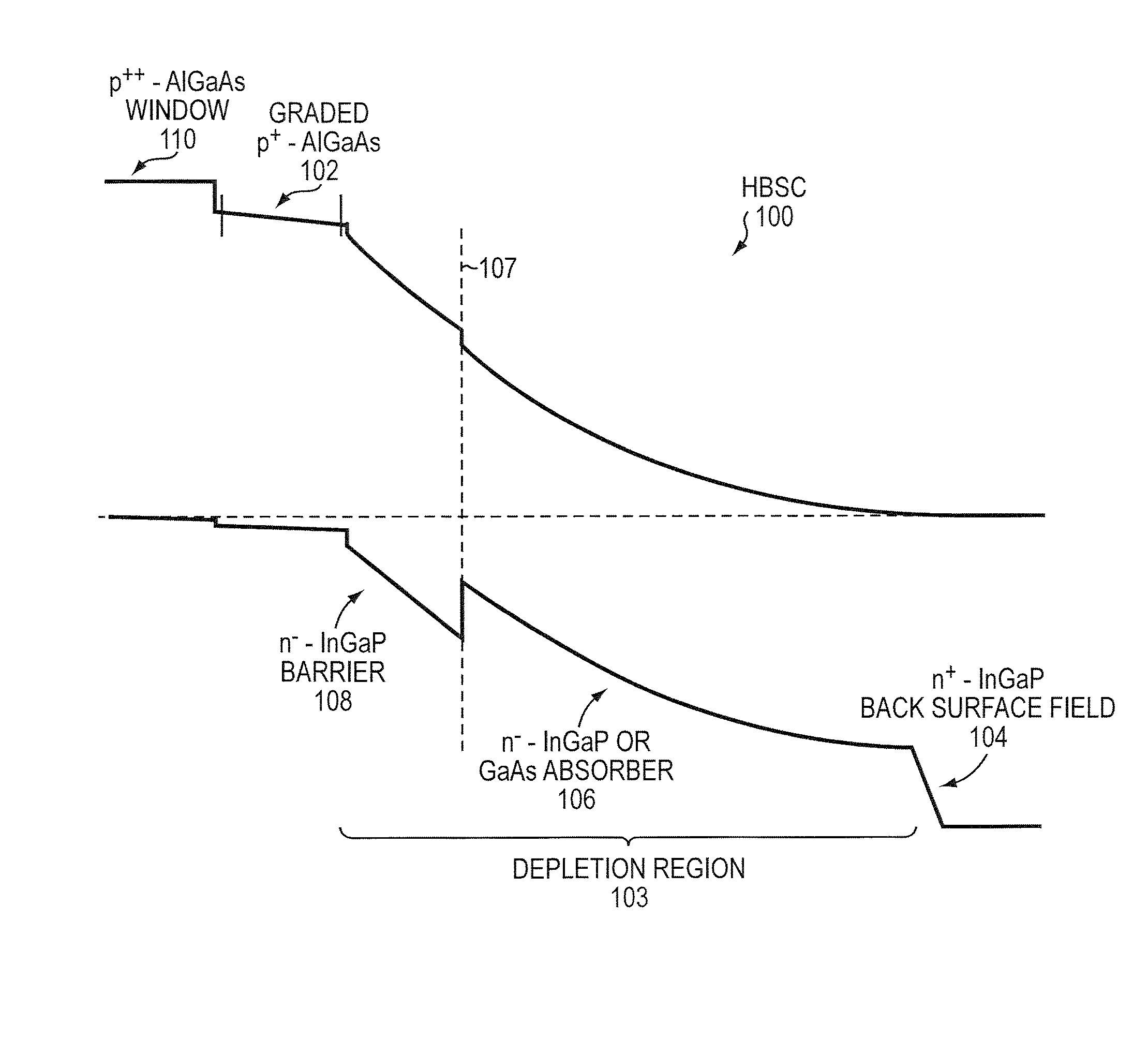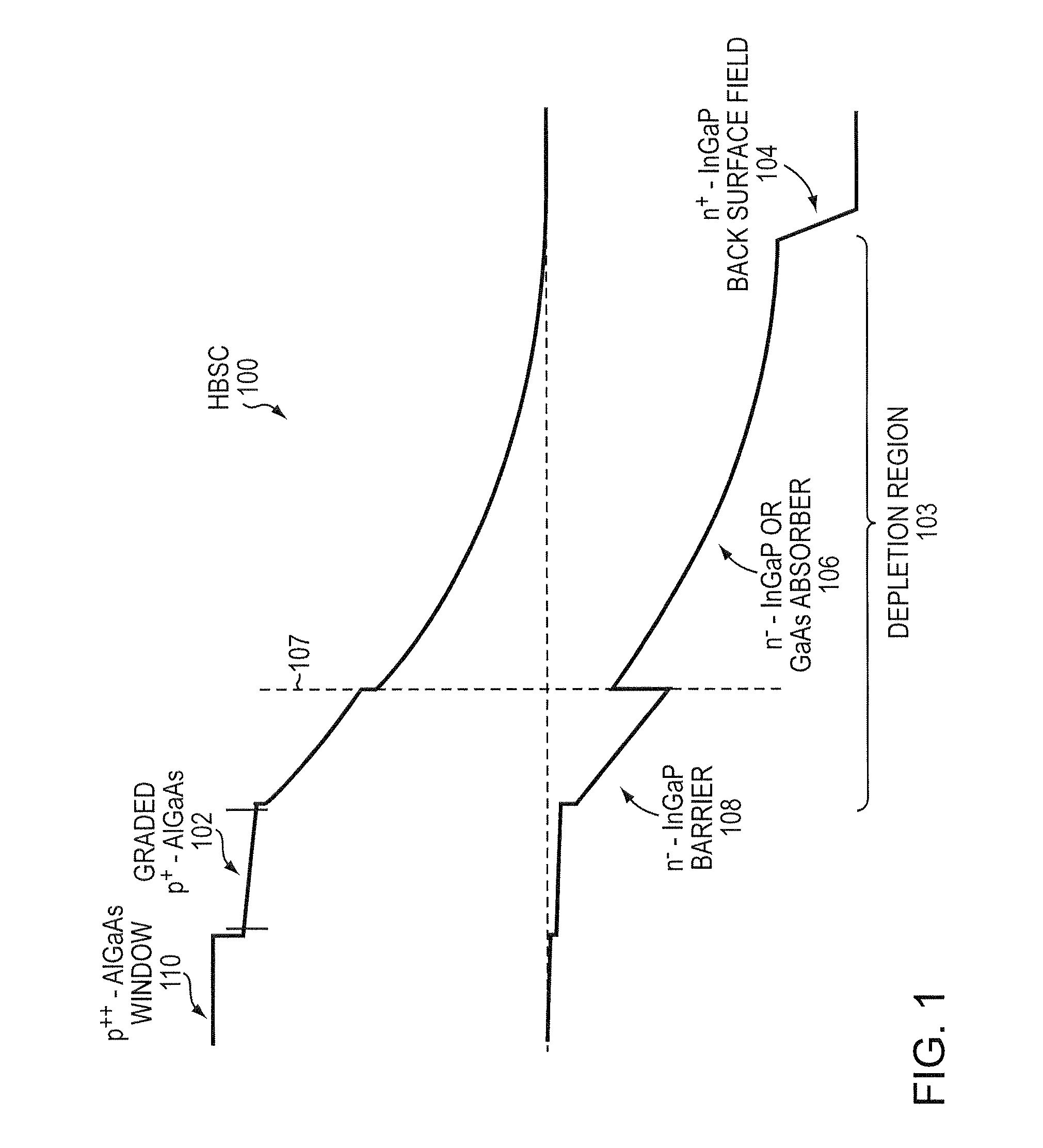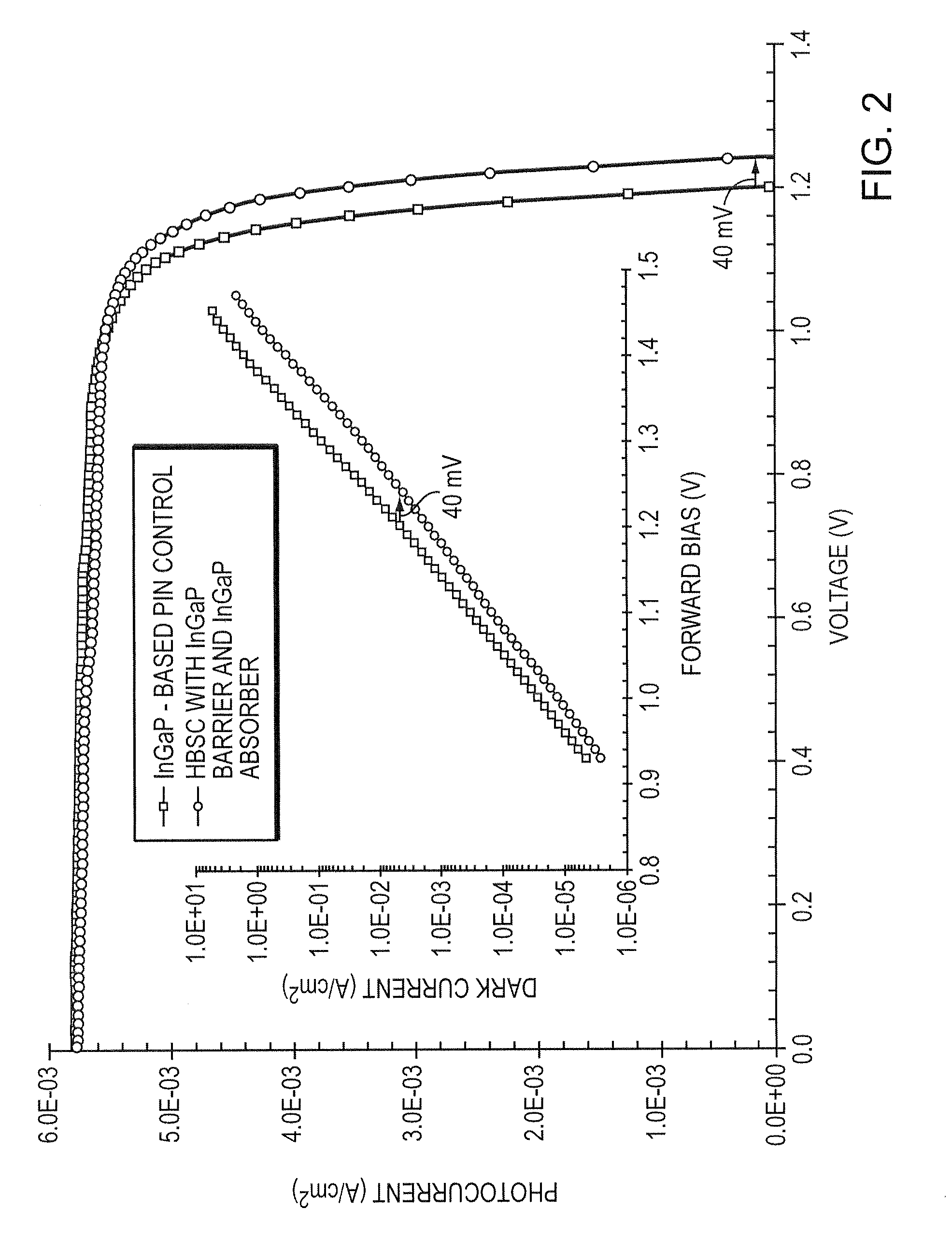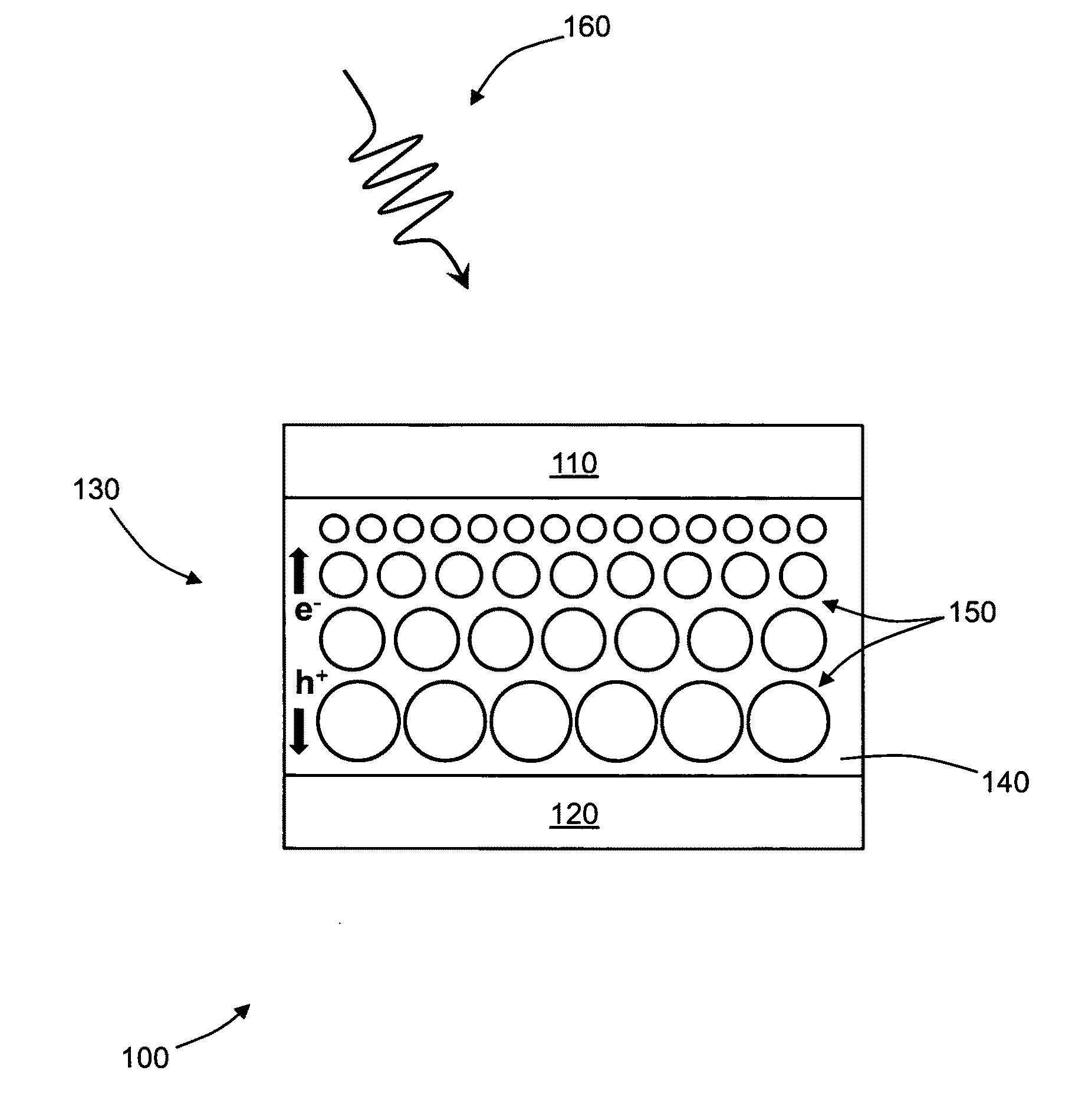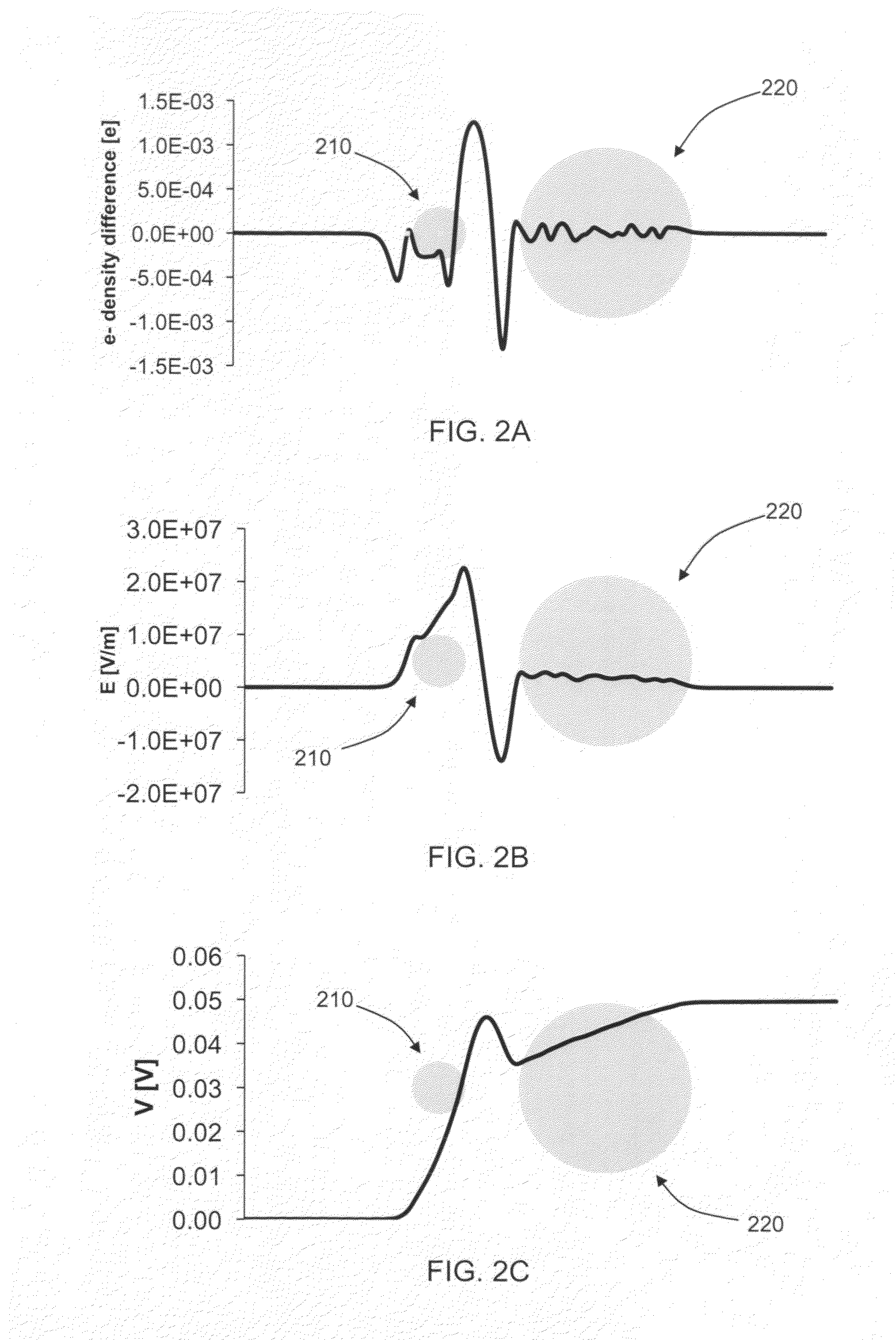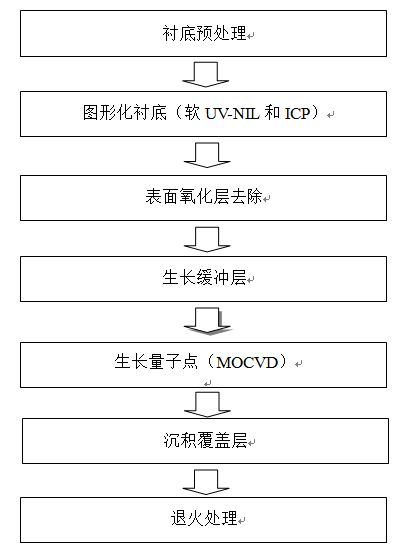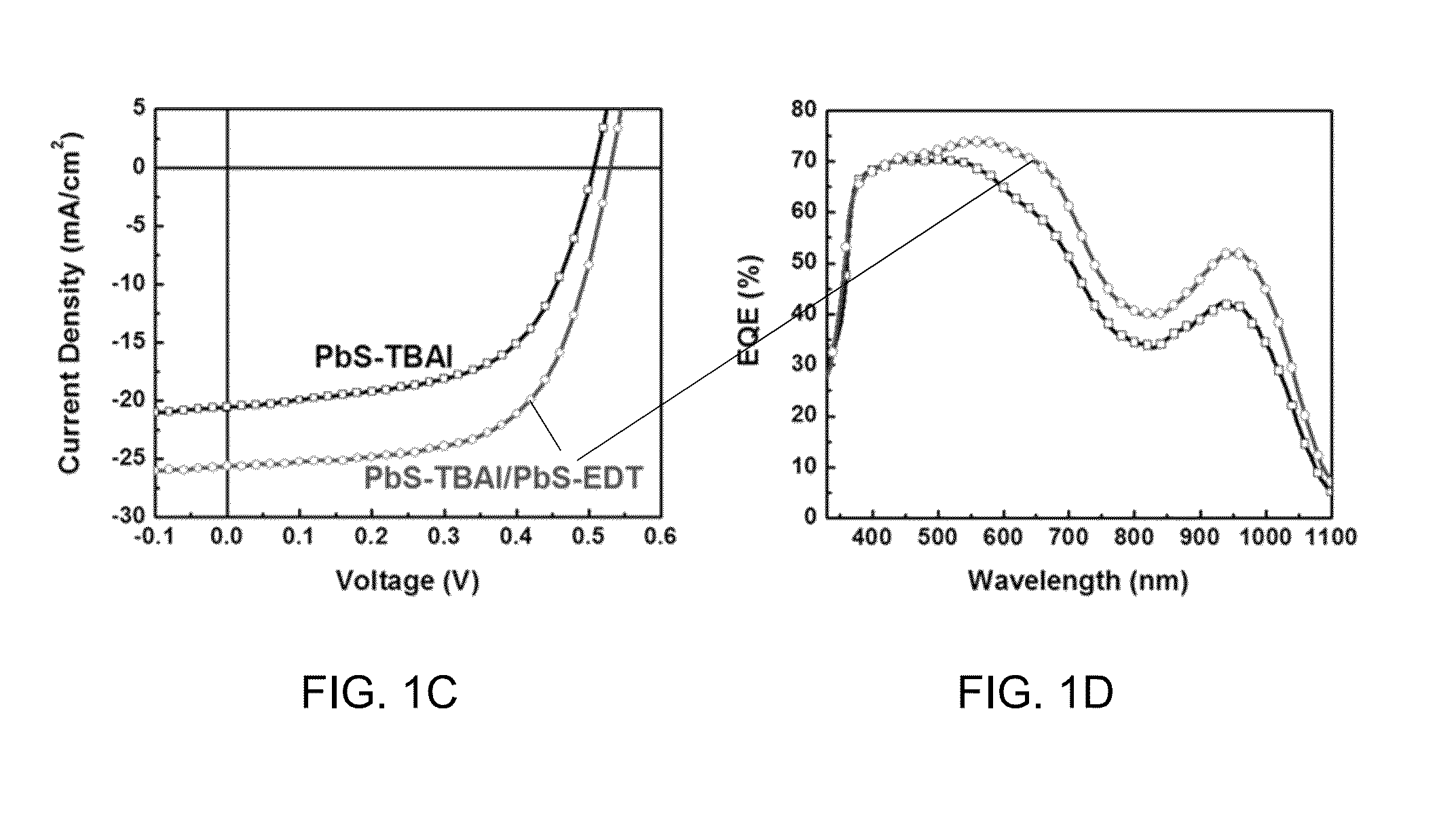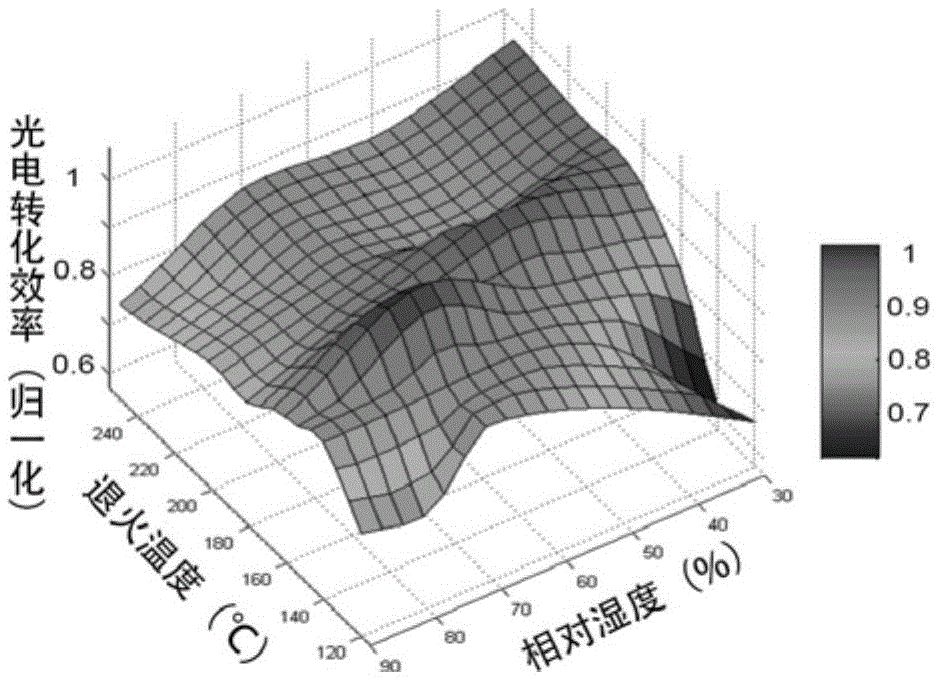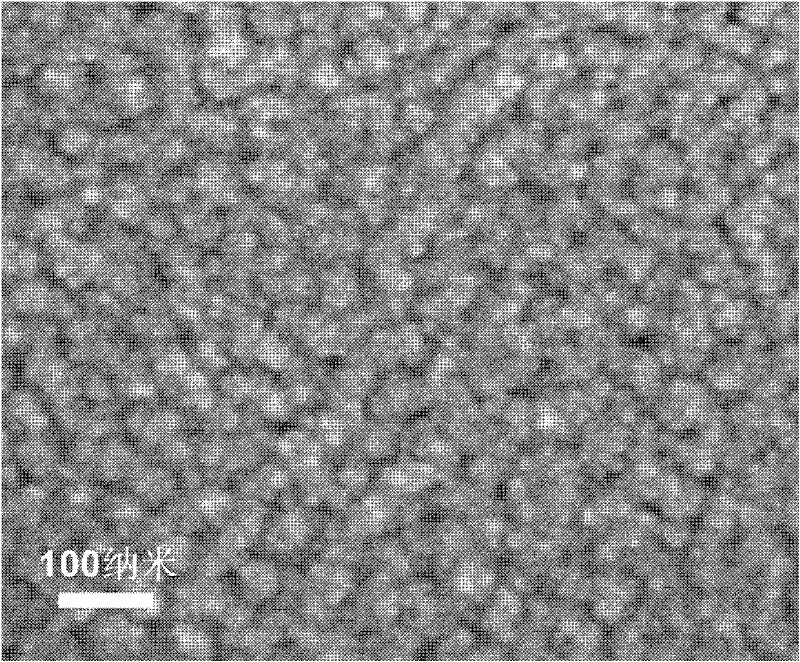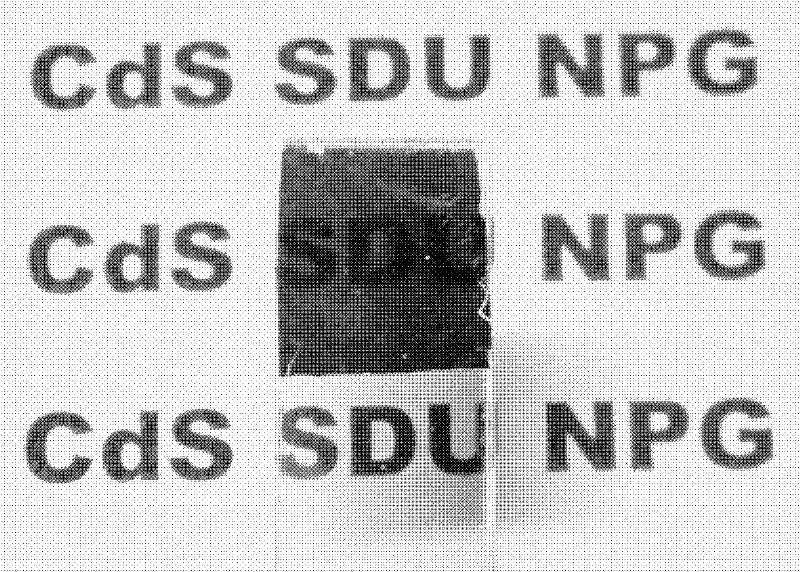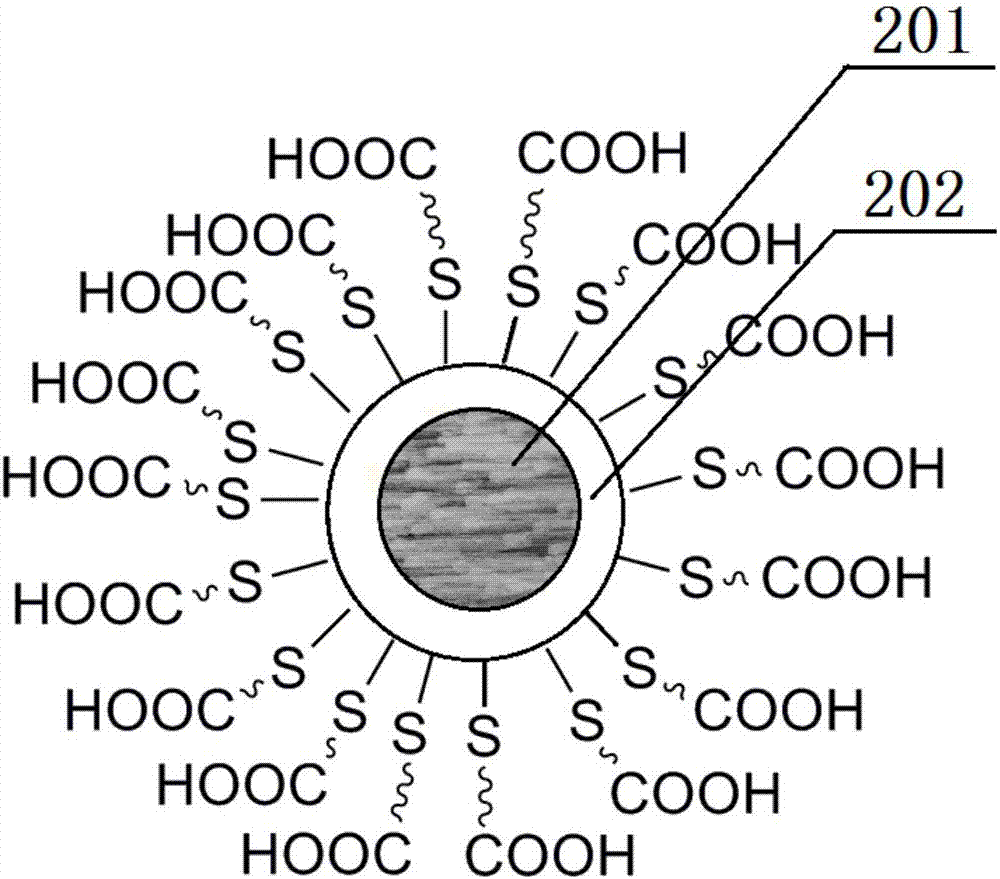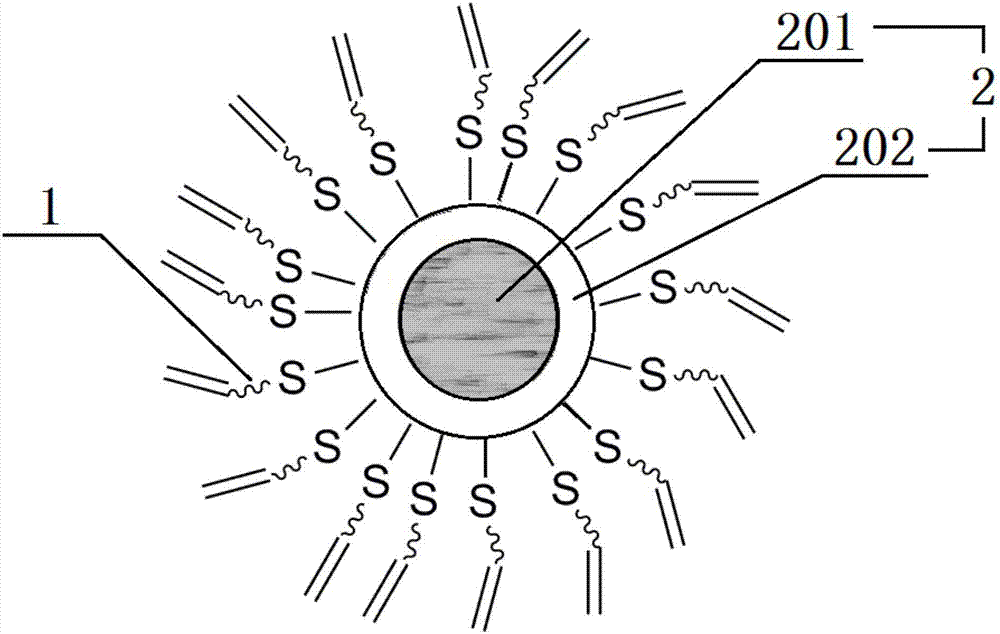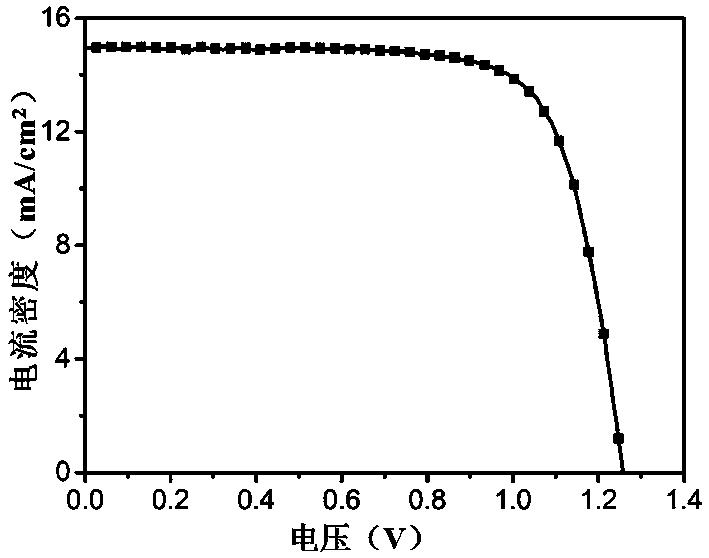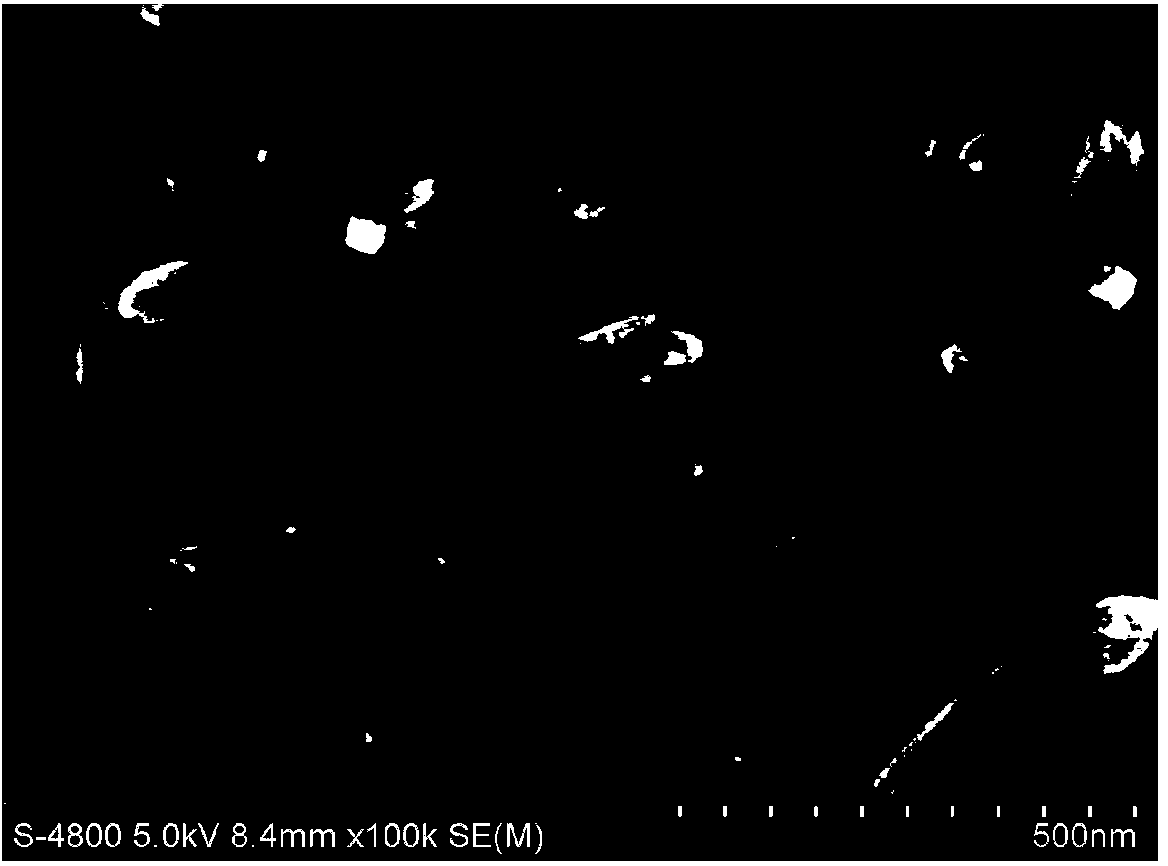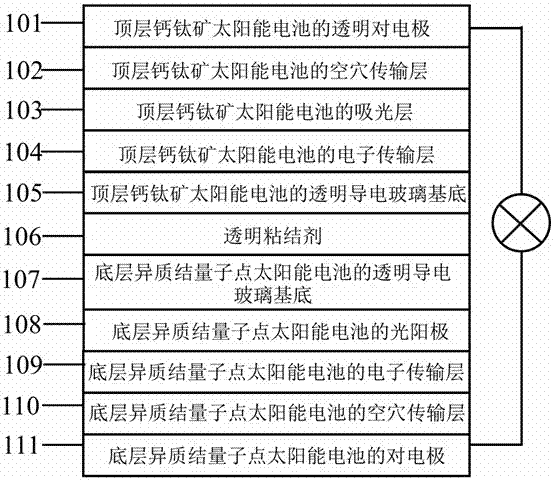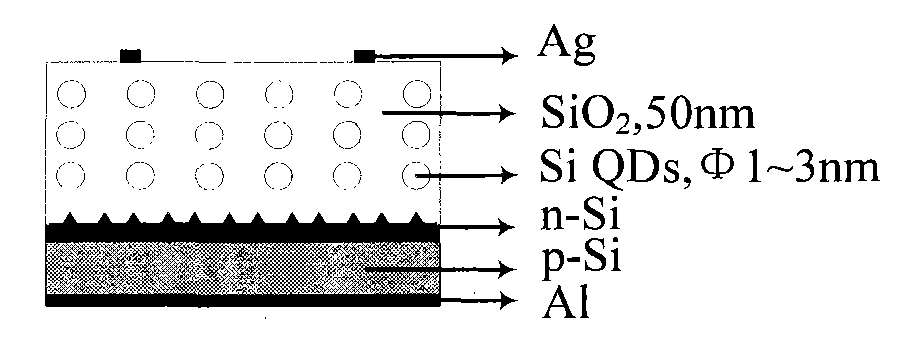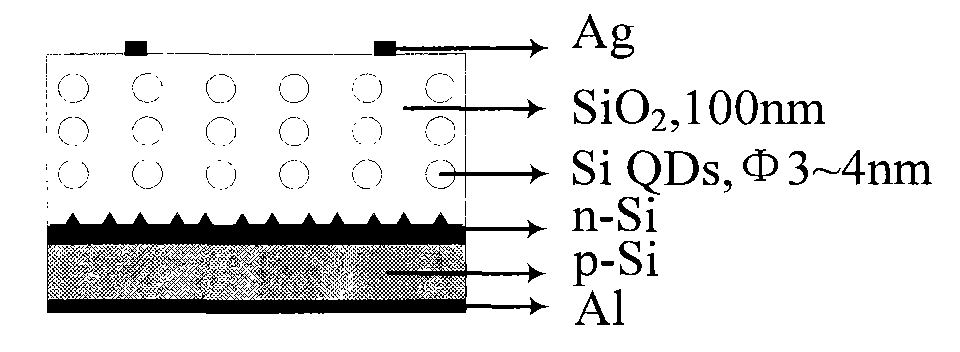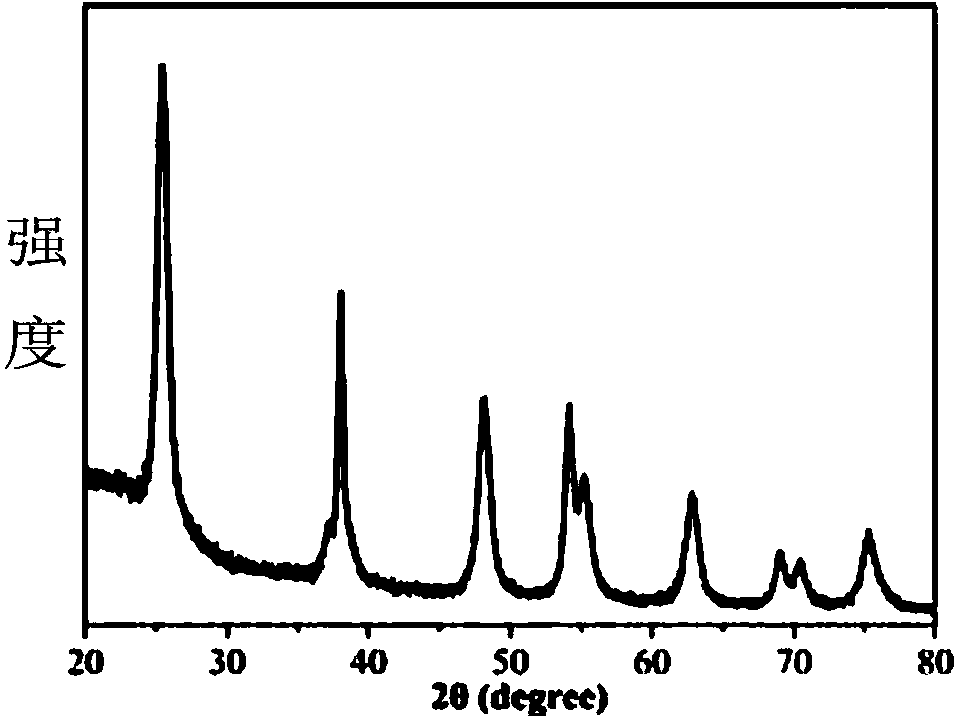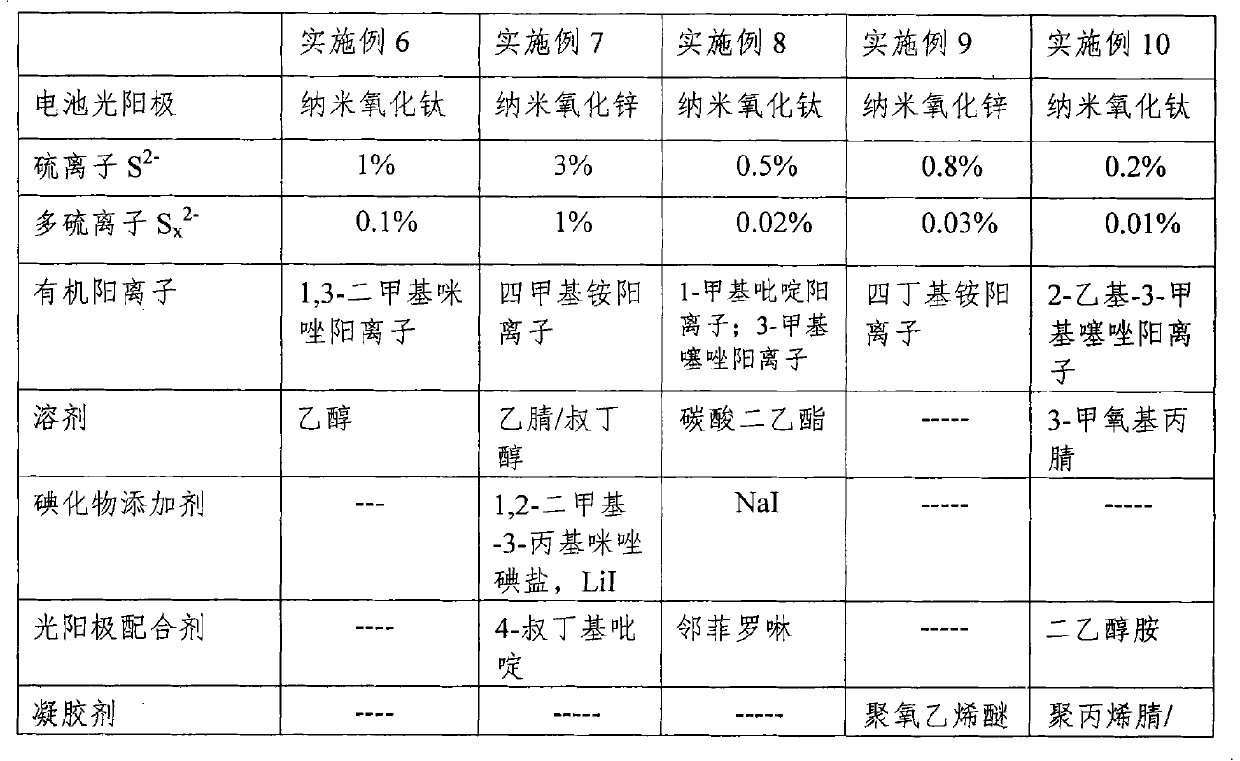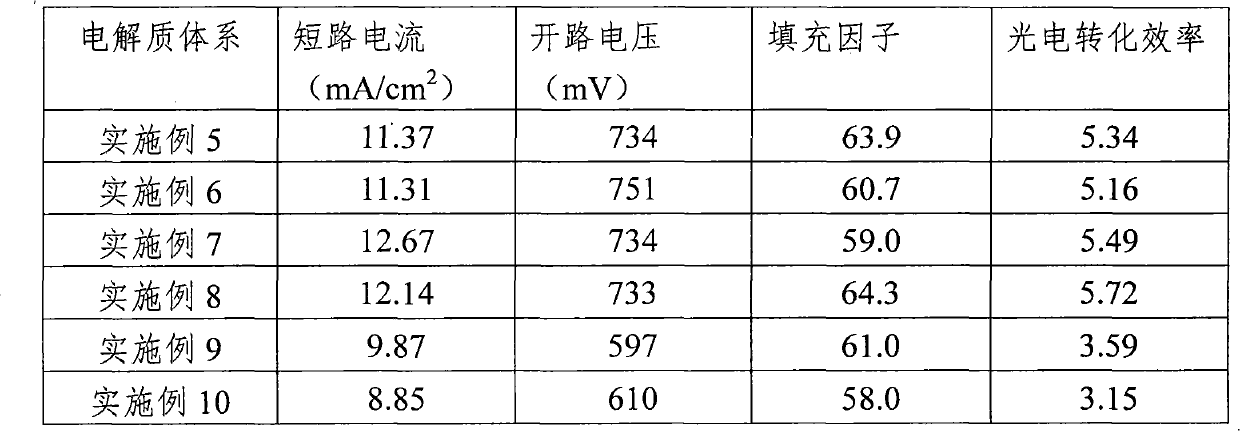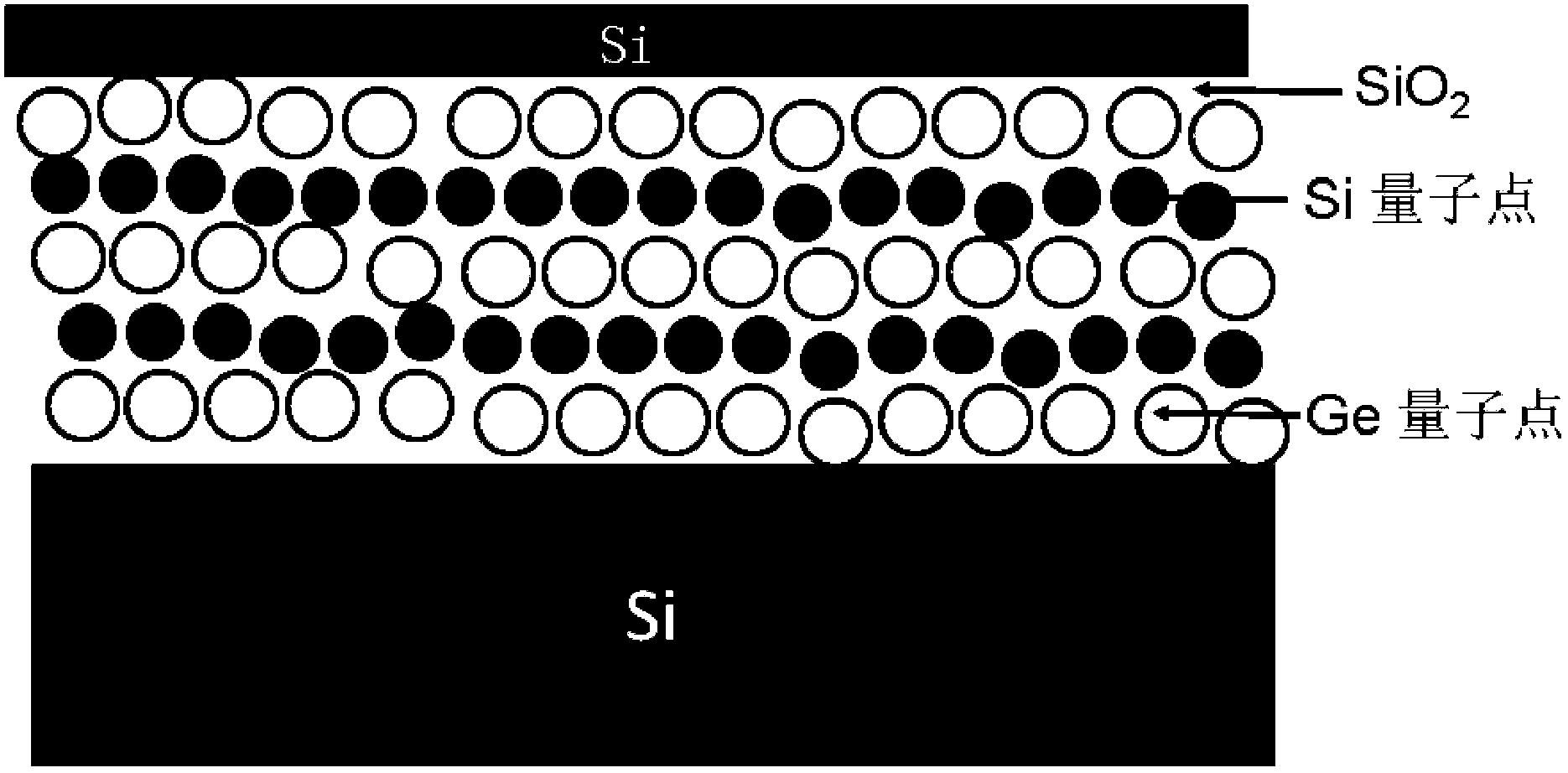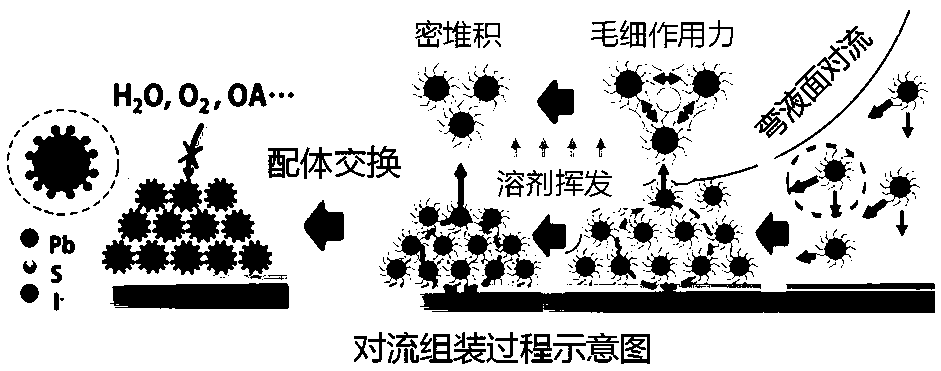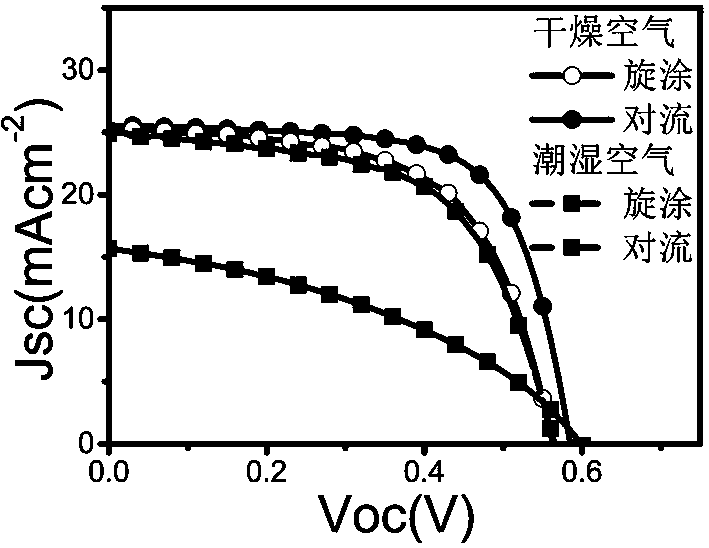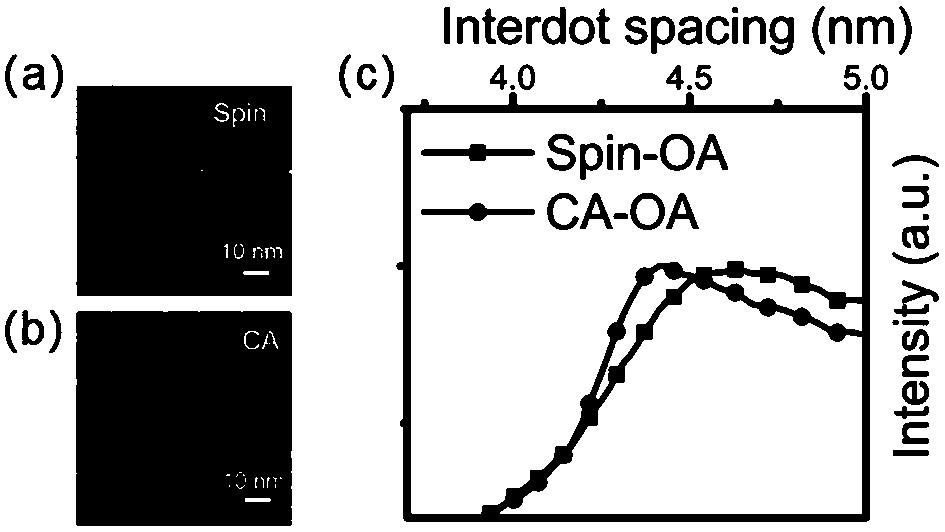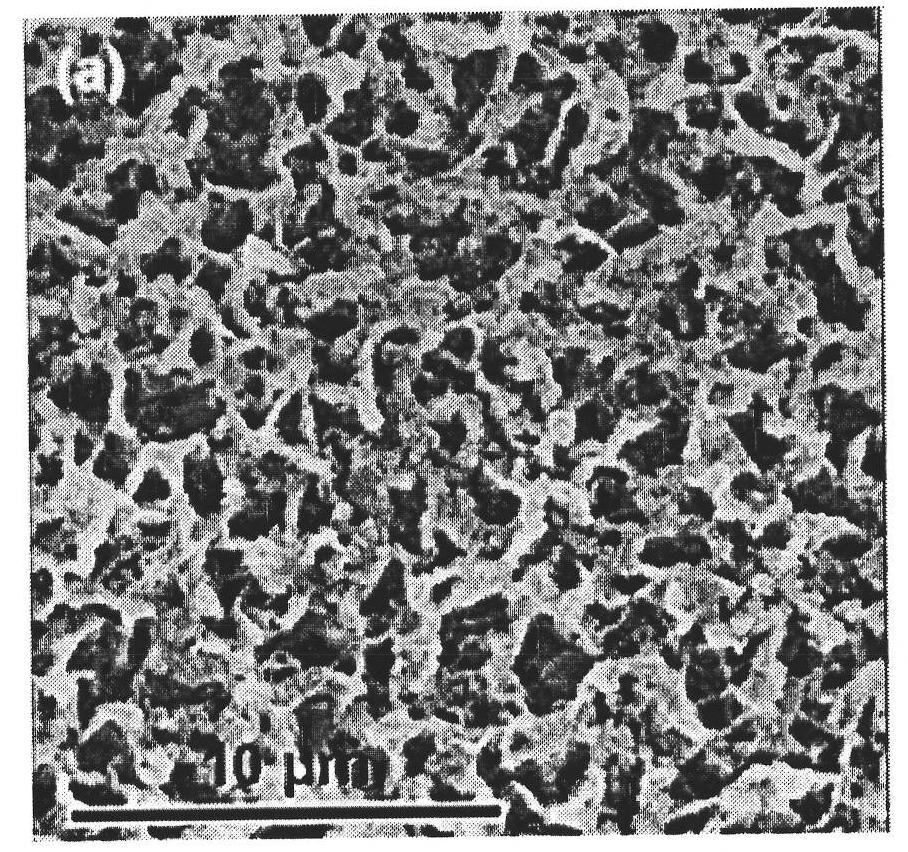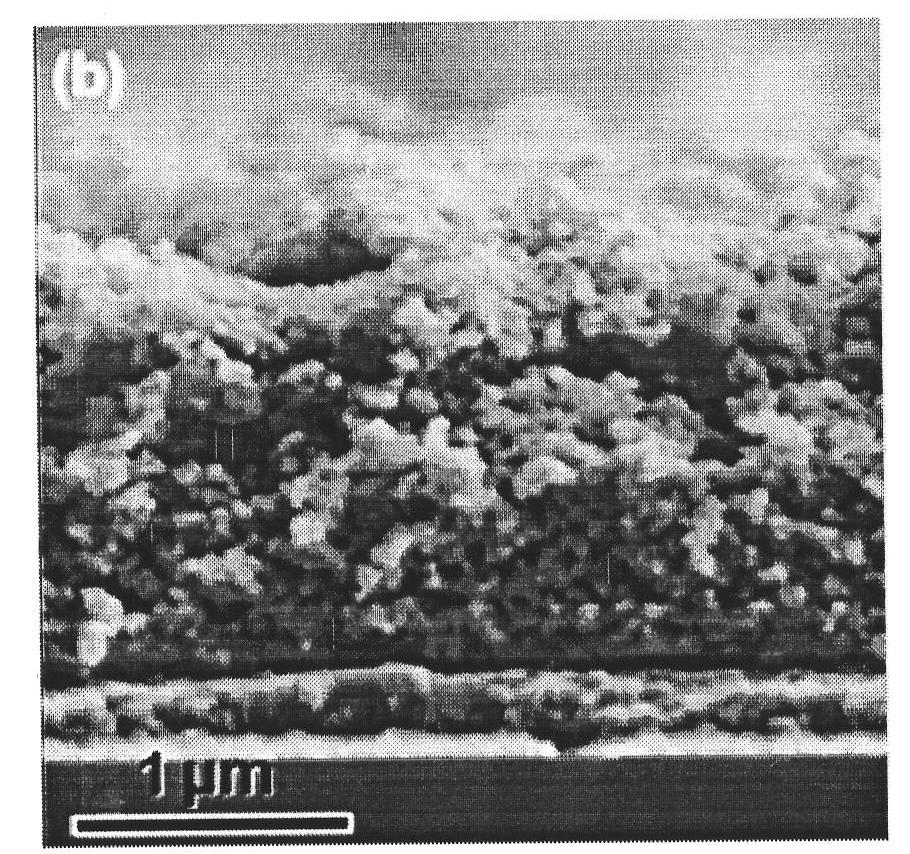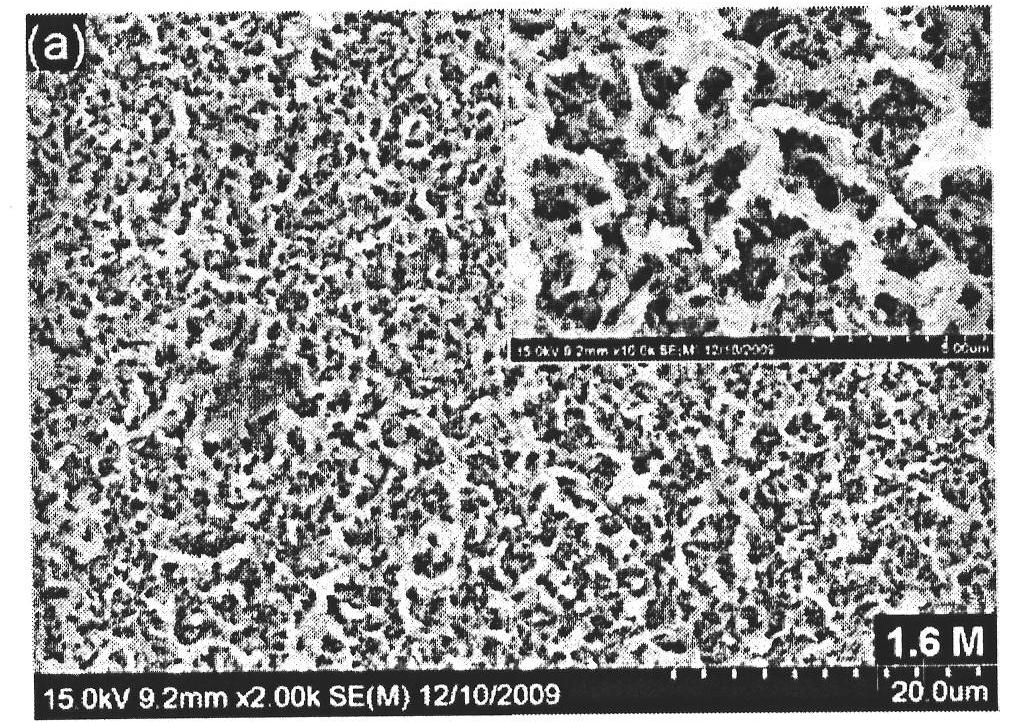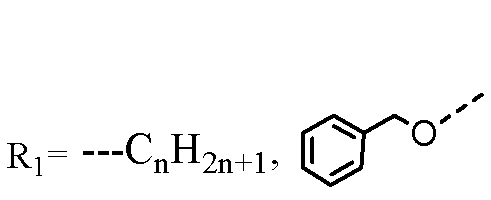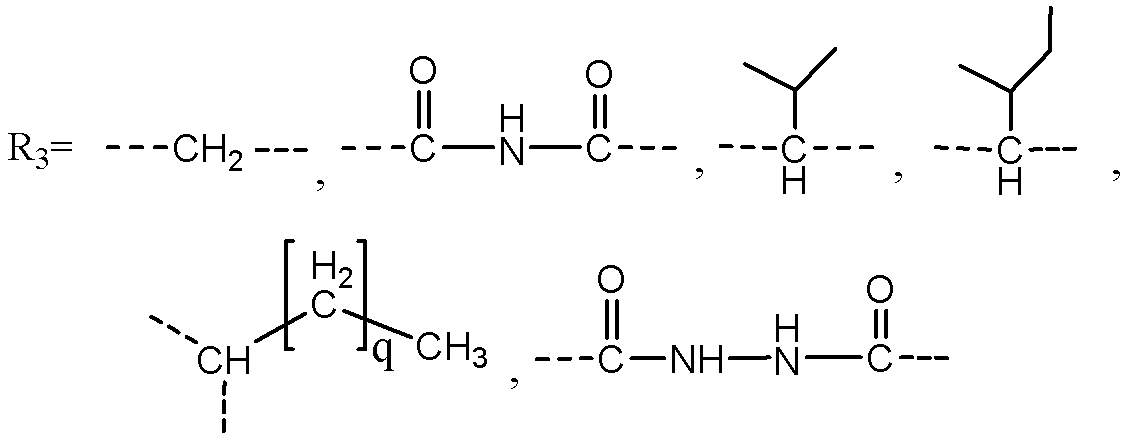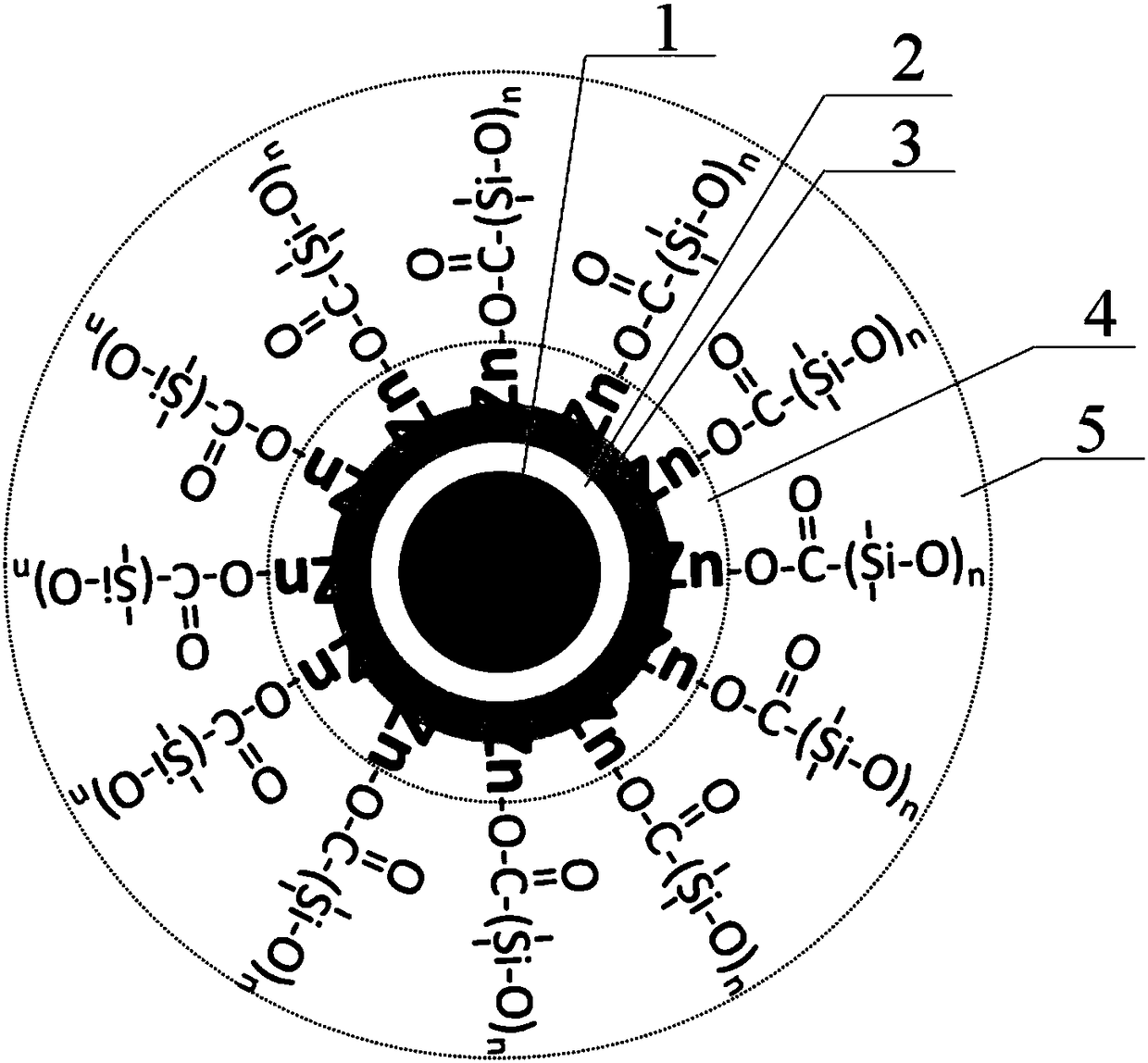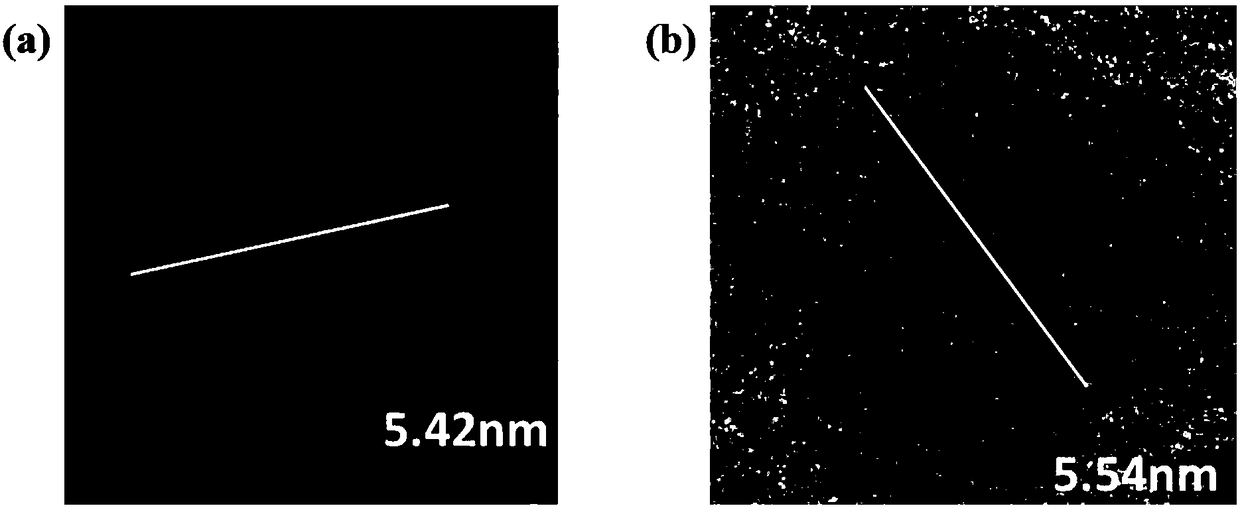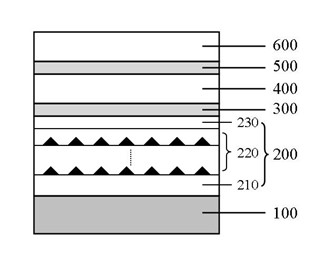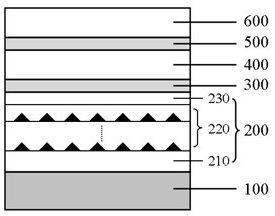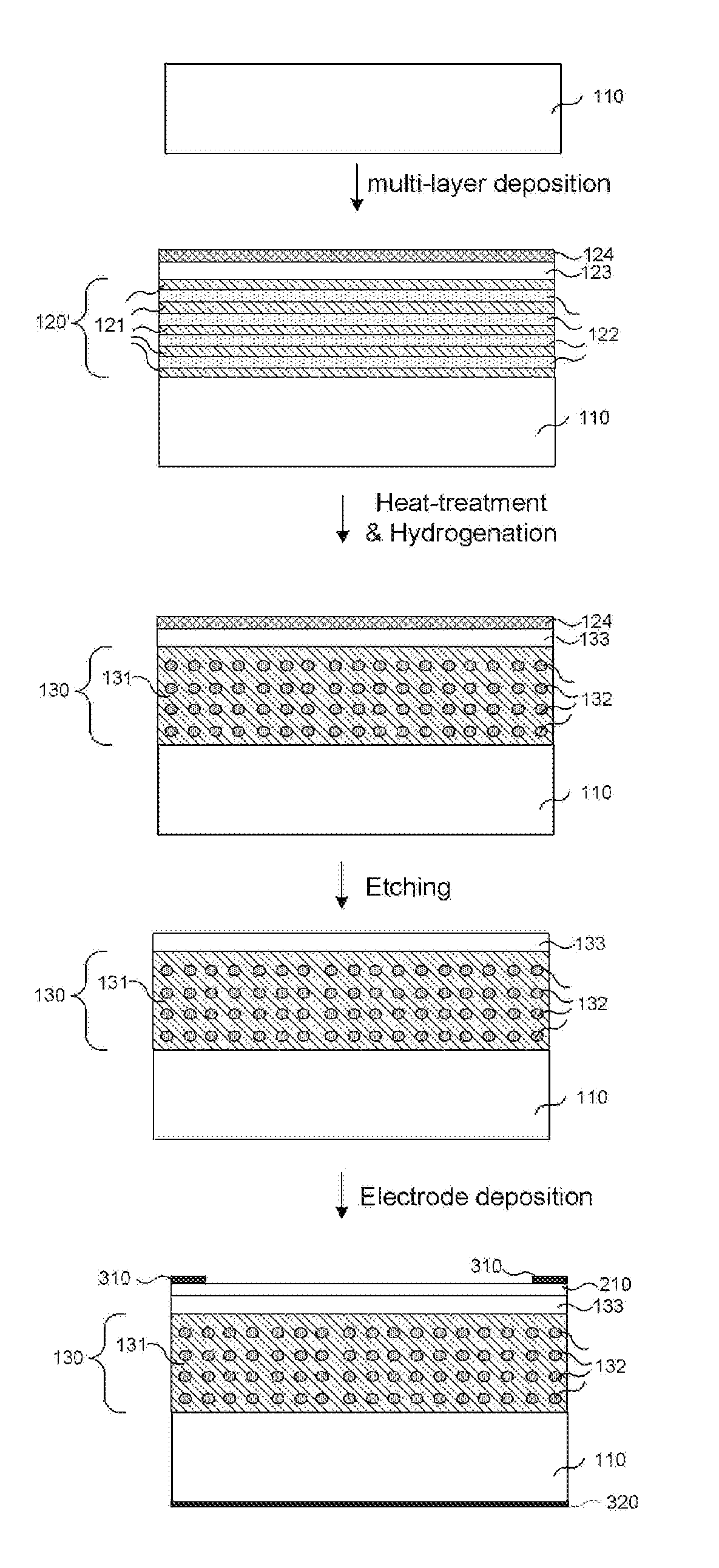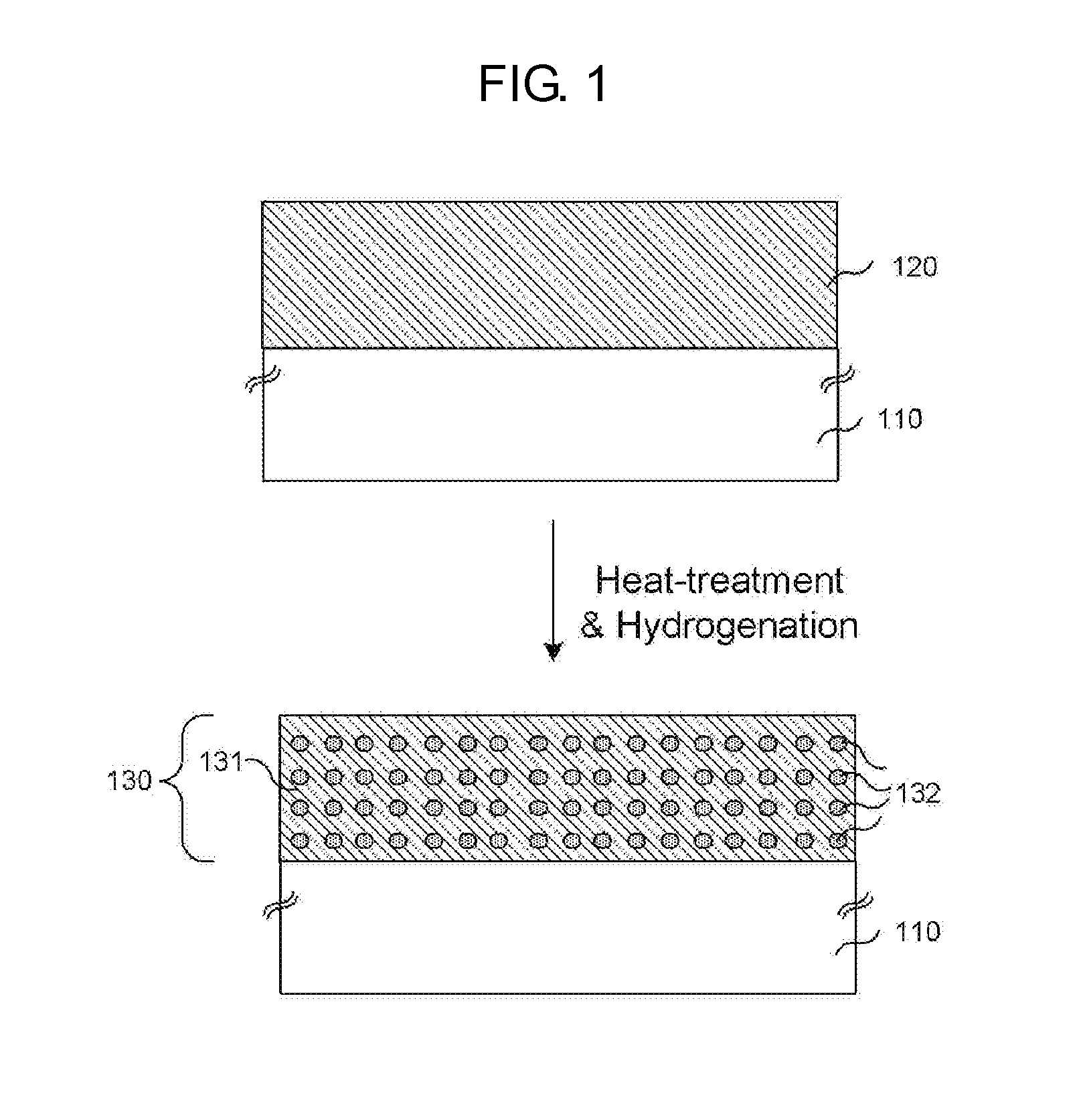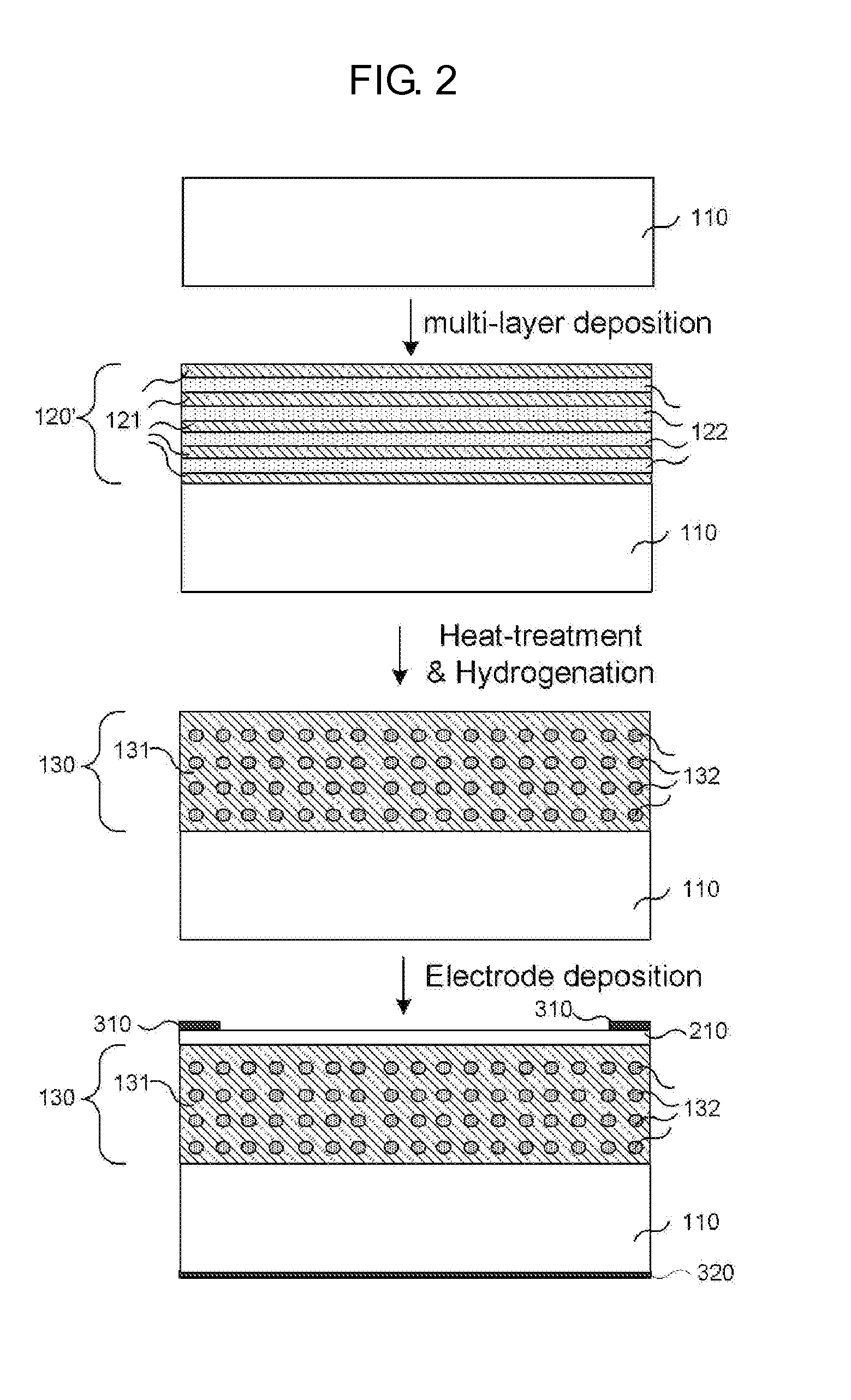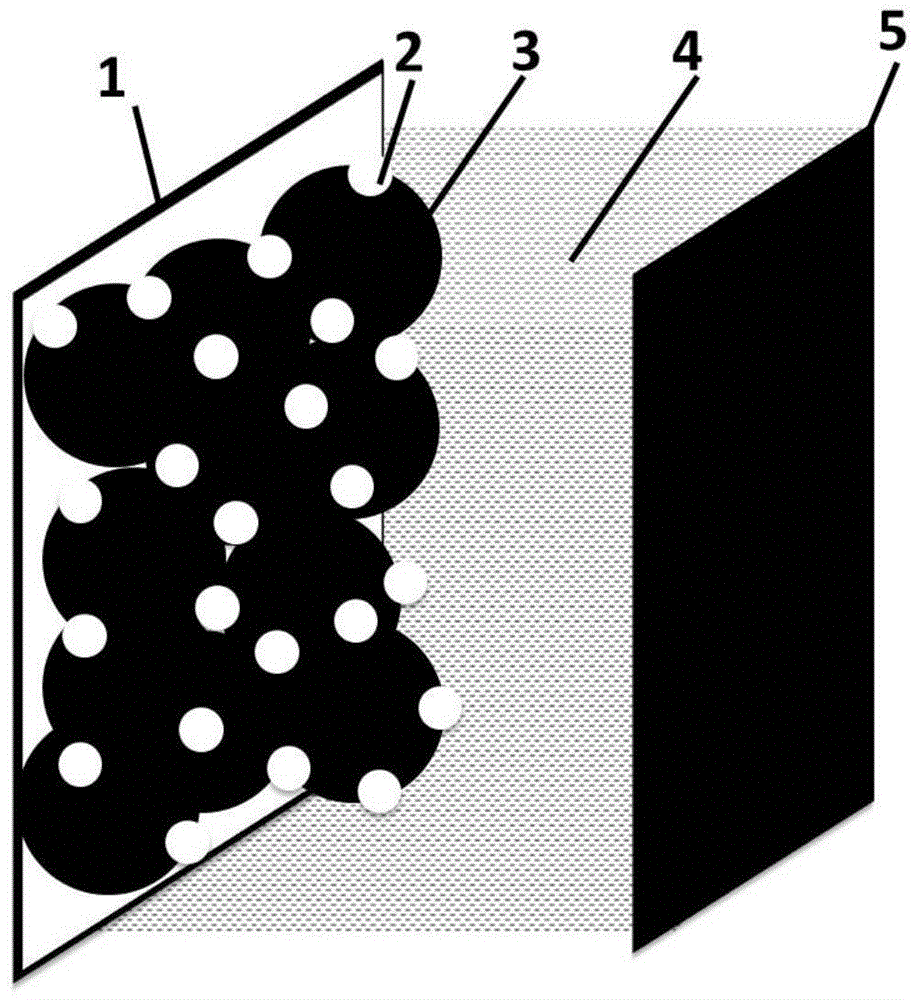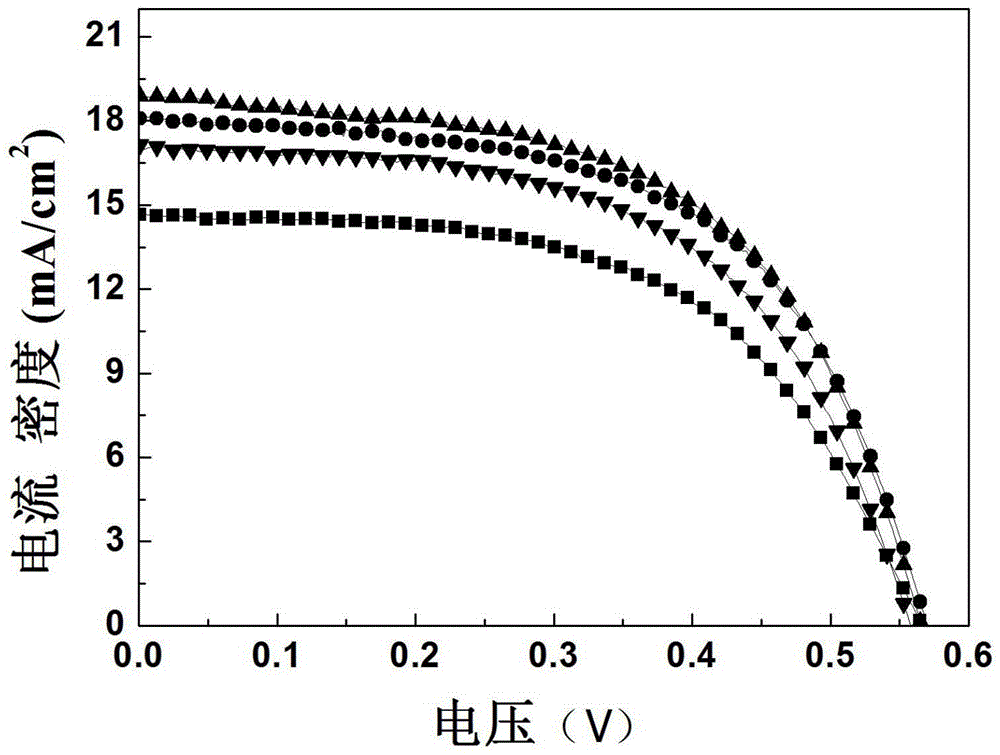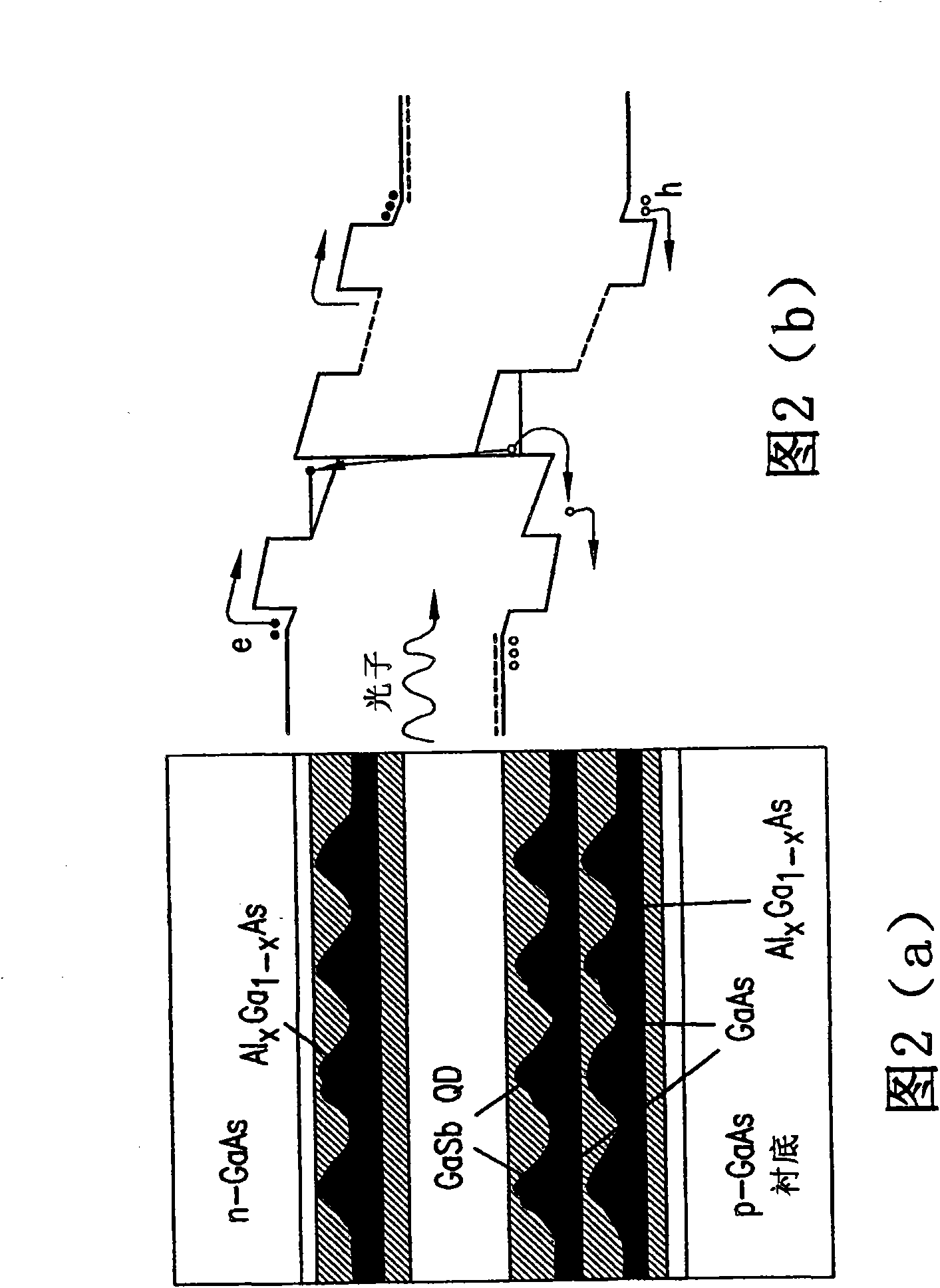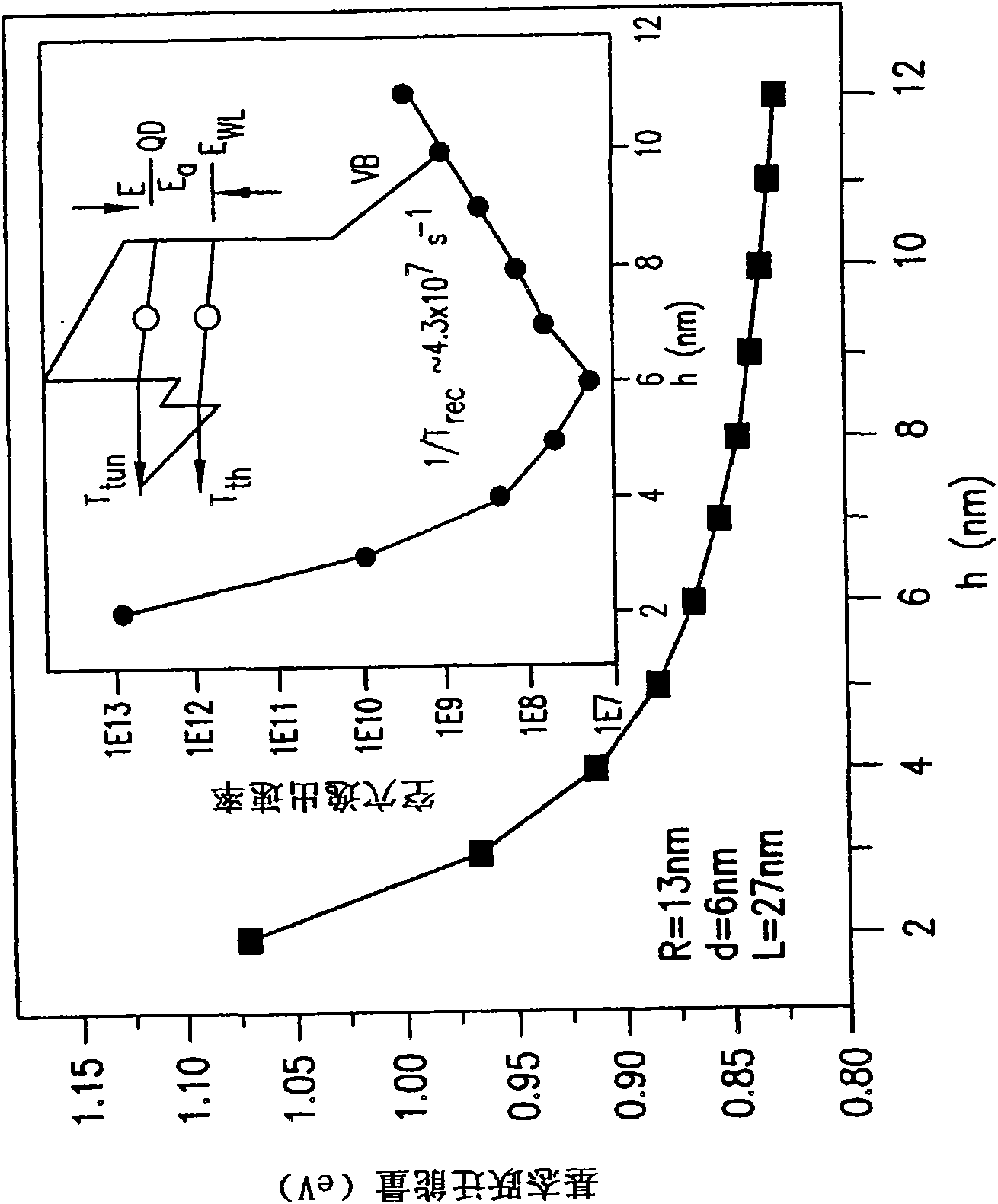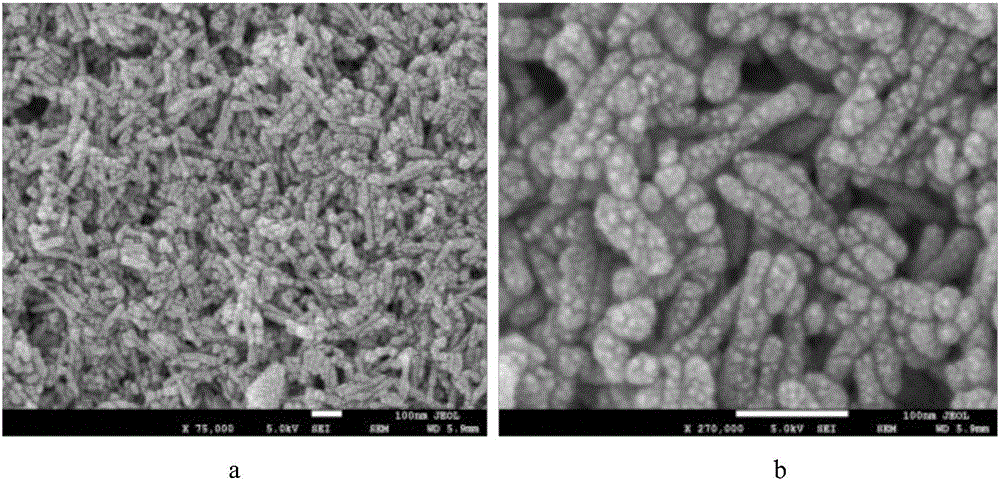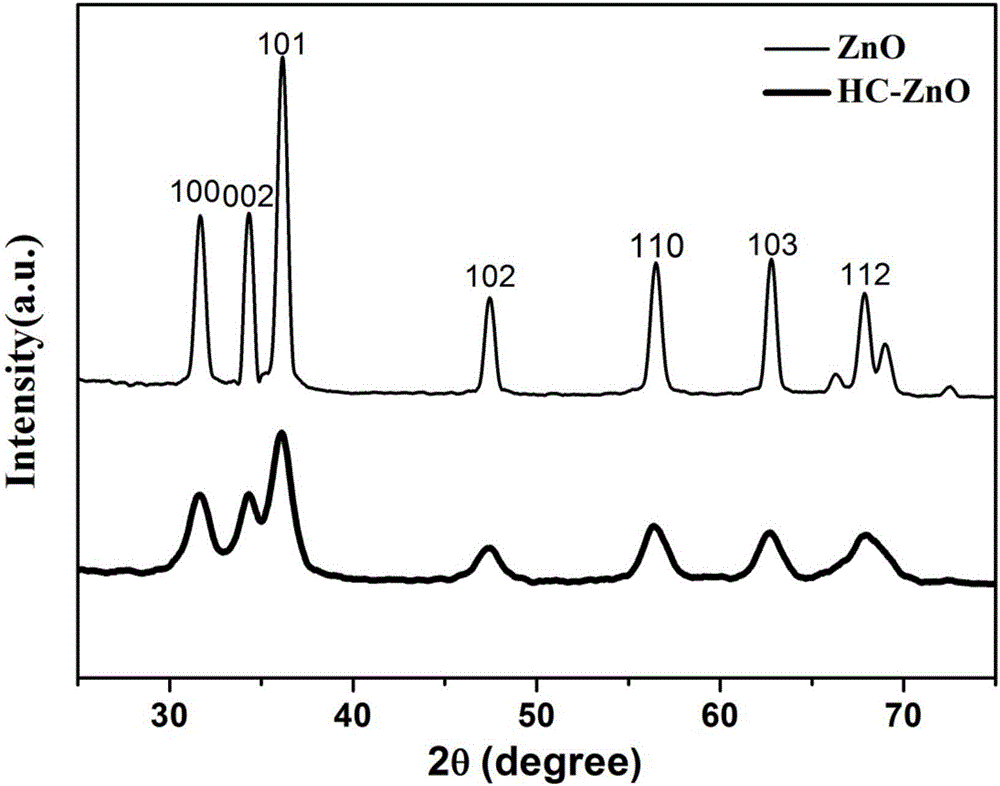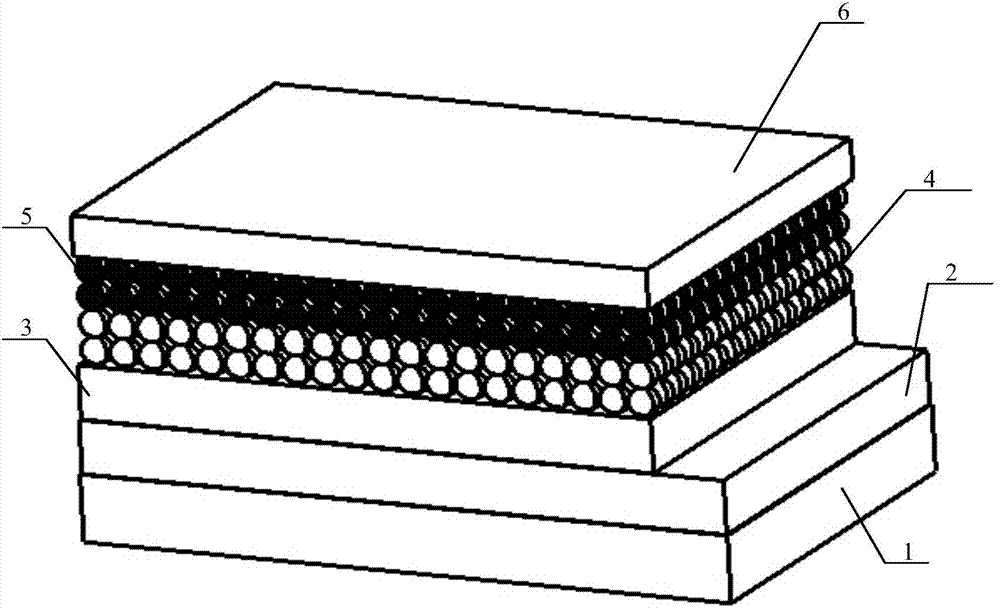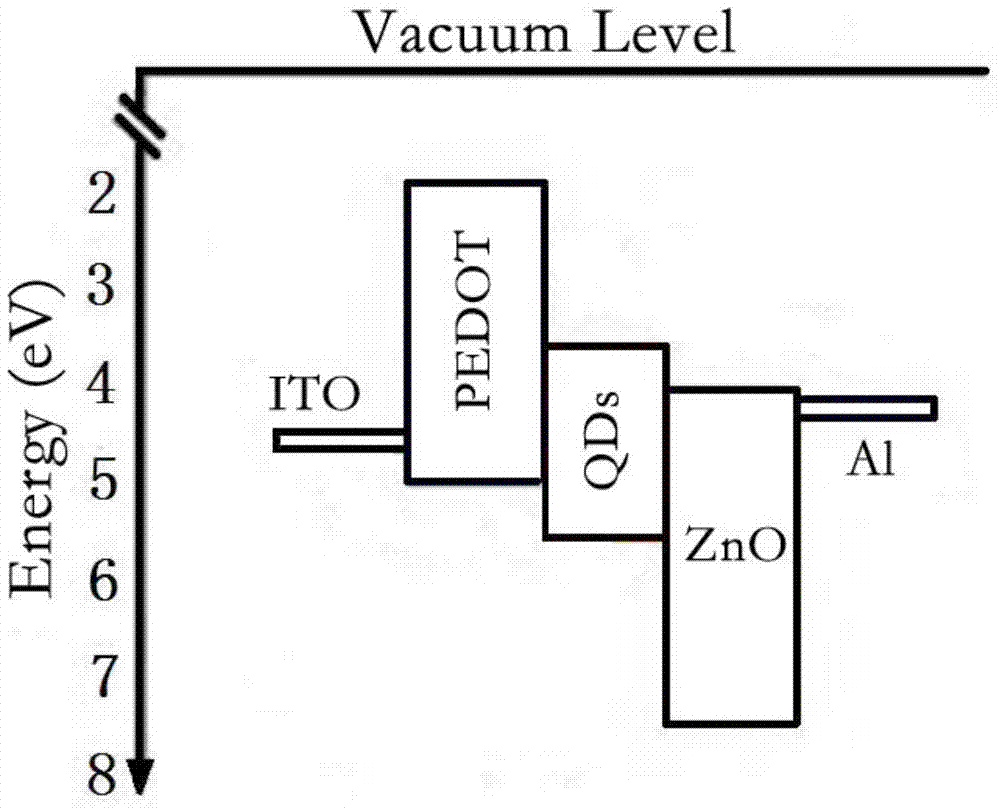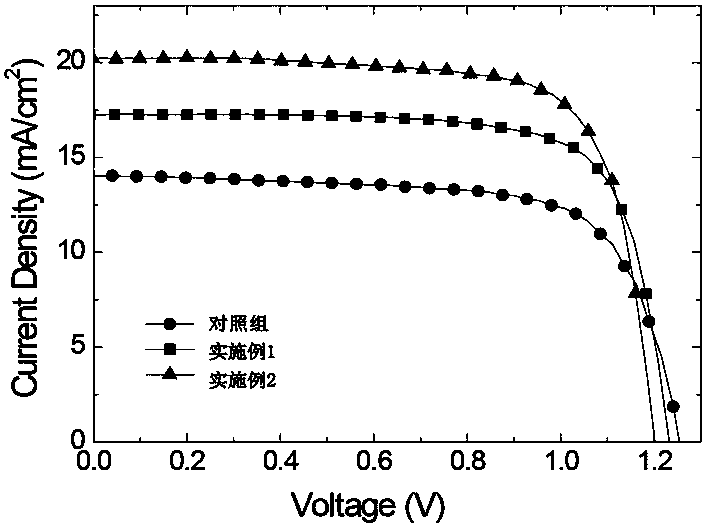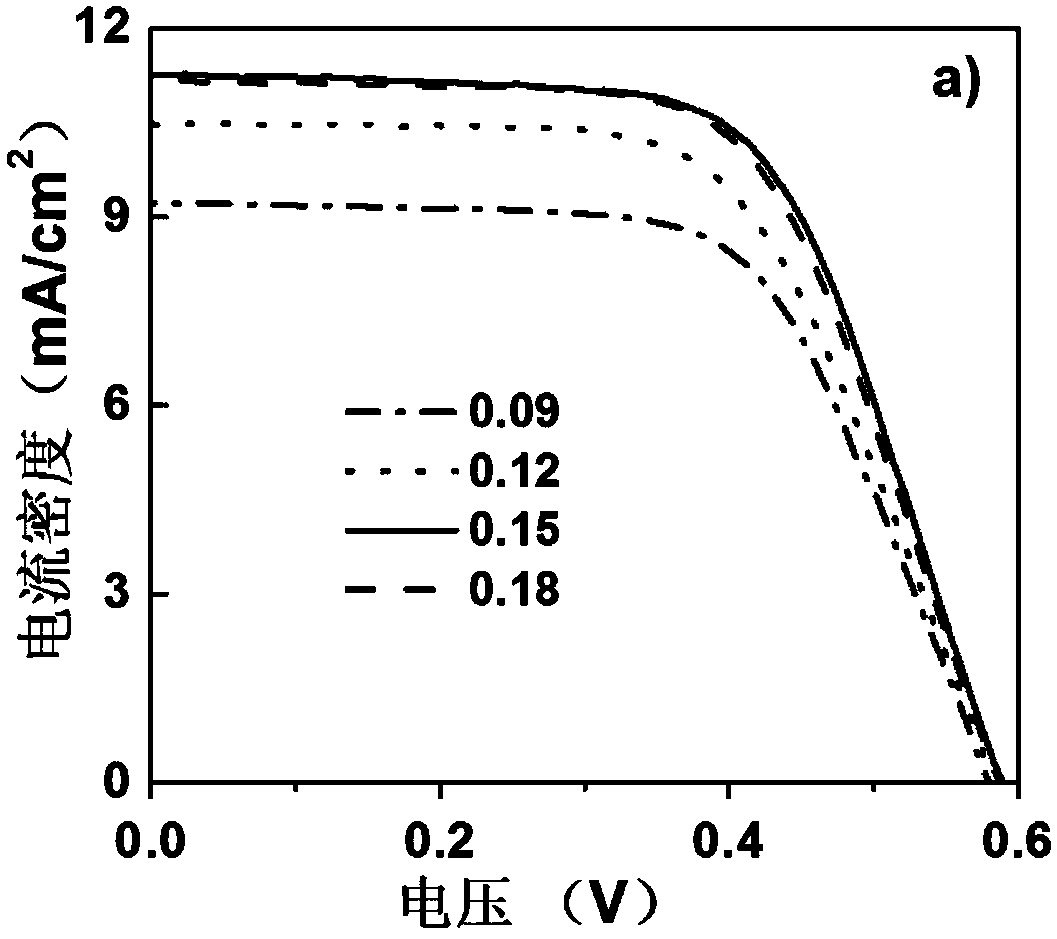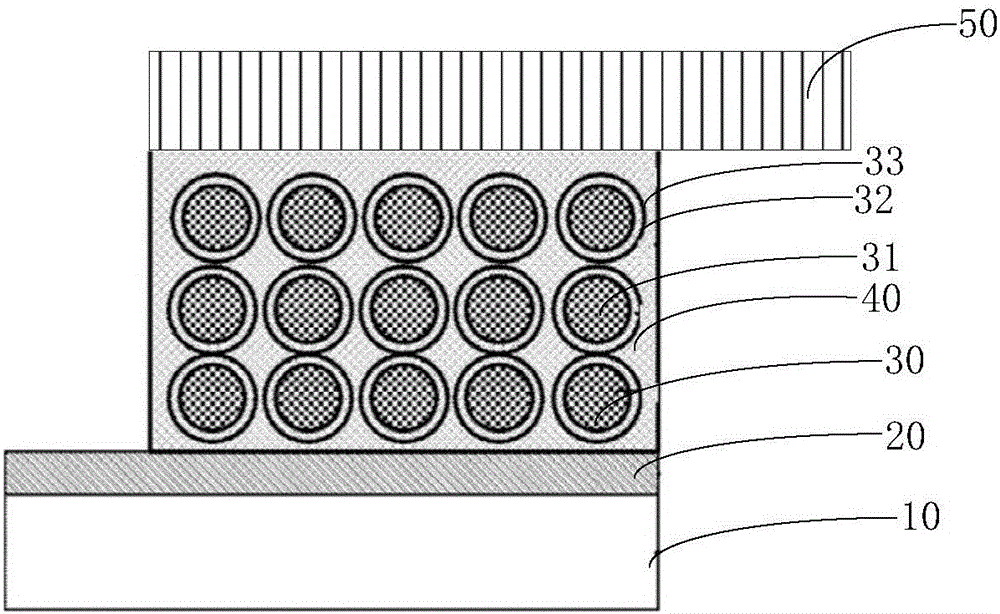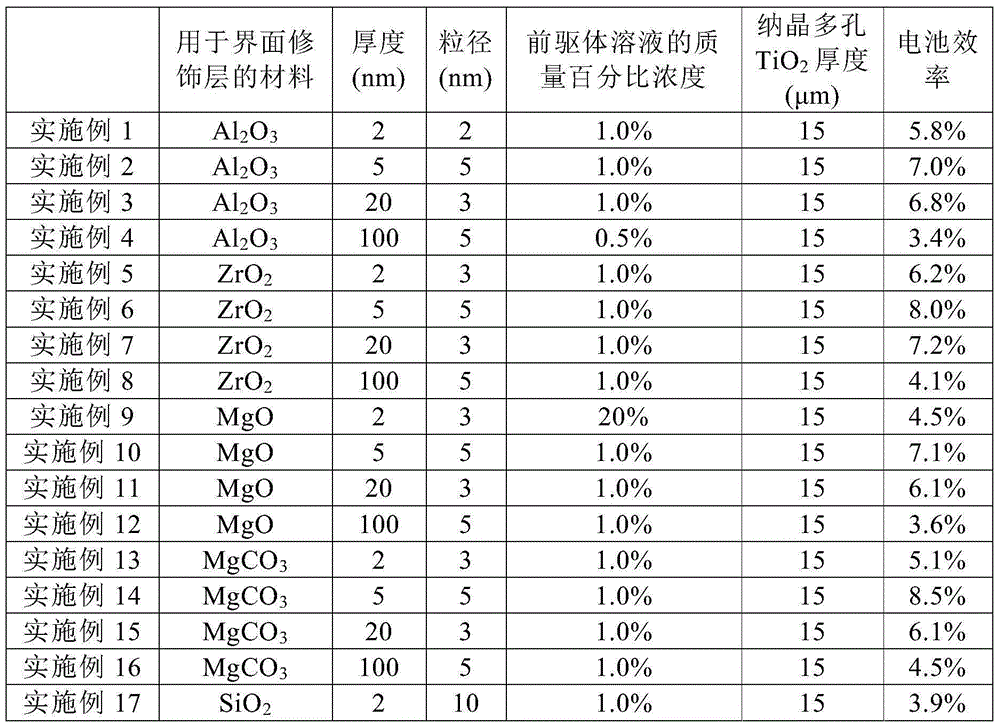Patents
Literature
Hiro is an intelligent assistant for R&D personnel, combined with Patent DNA, to facilitate innovative research.
96 results about "Quantum dot solar cell" patented technology
Efficacy Topic
Property
Owner
Technical Advancement
Application Domain
Technology Topic
Technology Field Word
Patent Country/Region
Patent Type
Patent Status
Application Year
Inventor
A quantum dot solar cell (QDSC) is a solar cell design that uses quantum dots as the absorbing photovoltaic material. It attempts to replace bulk materials such as silicon, copper indium gallium selenide (CIGS) or cadmium telluride (CdTe). Quantum dots have bandgaps that are tunable across a wide range of energy levels by changing their size. In bulk materials, the bandgap is fixed by the choice of material(s). This property makes quantum dots attractive for multi-junction solar cells, where a variety of materials are used to improve efficiency by harvesting multiple portions of the solar spectrum.
Ingap heterojunction barrier solar cells
ActiveUS20100096010A1Improve photovoltaic conversion efficiencyMaximize photocurrentNanotechSemiconductor/solid-state device manufacturingHeterojunctionIndium
A new solar cell structure called a heterojunction barrier solar cell is described. As with previously reported quantum-well and quantum-dot solar cell structures, a layer of narrow band-gap material, such as GaAs or indium-rich InGaP, is inserted into the depletion region of a wide band-gap PN junction. Rather than being thin, however, the layer of narrow band-gap material is about 400-430 nm wide and forms a single, ultrawide well in the depletion region. Thin (e.g., 20-50 nm), wide band-gap InGaP barrier layers in the depletion region reduce the diode dark current. Engineering the electric field and barrier profile of the absorber layer, barrier layer, and p-type layer of the PN junction maximizes photogenerated carrier escape. This new twist on nanostructured solar cell design allows the separate optimization of current and voltage to maximize conversion efficiency.
Owner:KOPIN CORPORATION
Quantum dot solar cell with quantum dot bandgap gradients
Efficient photovoltaic devices with quantum dots are provided. Quantum dots have numerous desirable properties that can be used in solar cells, including an easily selected bandgap and Fermi level. In particular, the size and composition of a quantum dot can determine its bandgap and Fermi level. By precise deposition of quantum dots in the active layer of a solar cell, bandgap gradients can be present for efficient sunlight absorption, exciton dissociation, and charge transport. Mismatching Fermi levels are also present between adjacent quantum dots, allowing for built-in electric fields to form and aid in charge transport and the prevention of exciton recombination.
Owner:HONDA MOTOR CO LTD
Manufacture method of large-area highly uniform sequential quantum dot array
InactiveCN101830430AReduce sizeSmall sizeNanostructure manufactureUltravioletInductively coupled plasma
The invention relates to a manufacture method of a large-area highly uniform sequential quantum dot array. The method comprises the following steps of: preparing a nanopore graphic array on a substrate by adopting soft ultraviolet nano imprint lithography (UV-NIL) and an inductively coupled plasma (ICP) technology; and growing quantum dots in a self-organizing way by using a prepared graphical substrate as a template and using a metal organic chemical vapor deposition (MOCVD) system. The invention realizes the low-cost, consistent and batched preparation of the large-area highly uniform sequential quantum dot array and can be applied to manufacture of devices such as quantum dot lasers, quantum dot memories, quantum dot solar batteries, quantum dot LEDs, single photon emitters, and the like.
Owner:SHANDONG UNIV
Quantum dot solar cells with band alignment engineering
A solar cell and method of making are disclosed. The solar cell includes an acceptor layer a donor layer treated with a first quantum dot (QD) ligand and a blocking layer treated with a second, different, QD ligand. The acceptor layer has an acceptor layer valence band and an acceptor layer conduction band. The donor layer has a donor layer valence band and a donor layer conduction band, the donor layer valence band is higher than the acceptor layer valence band, the donor layer conduction band is higher than the acceptor layer conduction band. The blocking layer least partially blocks electron flow in at least one direction, the blocking layer having a blocking layer valence band and a blocking layer conduction band, the blocking layer valence band is higher than the donor layer valence band, the blocking layer conduction band is higher than the donor layer conduction band.
Owner:MASSACHUSETTS INST OF TECH
Nanocrystalline composite center-based stacked solar cell and preparation method thereof
InactiveCN105679858AStable performanceEasy to operateFinal product manufacturePhotovoltaic energy generationElectrical batteryEngineering
The invention discloses a nanocrystalline composite center-based stacked solar cell and a preparation method thereof. Specifically, the preparation method comprises the following three steps: (1) preparation of a front sub-cell; (2) preparation of a composite center; and (3) preparation of a back sub-cell. With lead sulfide nanocrystal as a hole transport layer of the composite center, the stacked solar cell has the characteristic that a solvent method process is simple in operation and has the device stability that a traditional solvent method material is short of. A novel composite center and lead sulfide colloidal quantum dot solar cell system has the compatibility; the efficiency is much higher than that of a lead sulfide quantum dot lamination device reported at present; the temperature of the overall preparation process is controlled within 140 DEG C; the whole preparation process is carried out in air; the technology is simple; and an inert gas atmosphere is not needed. The preparation method disclosed by the invention breaks through existing technical bottlenecks, and provides a certain guidance function for further improvement of the photoelectric conversion efficiency of the device and promotion of commercialized development.
Owner:SUZHOU UNIV
Photoelectrode material of nanometer porous metal load semiconductor and preparation method thereof
InactiveCN102201459ALow conductivityGood electron transmission pathFinal product manufactureSemiconductor devicesElectron Transport PathwayMicrometer
The invention relates to a photoelectrode material used in a solar cell and a preparation method thereof, especially relates to a photoelectrode material of a nanometer porous metal load semiconductor and a preparation method thereof, belonging to the photoelectrode chemistry technical field. The photoelectrode material of a nanometer porous metal load semiconductor comprises a nanometer porous metal with a thickness of 50 nanometer to 100 micrometer and a semiconductor layer with a thickness of 1 nanometer to 1 micrometer, wherein after deposition the semiconductor layer uniformly coats the three dimensionally continuous hole wall surface of the nanometer porous metal. Compared with the photoanode material of traditional quantum dot solar cell, nanometer porous metal of the photoelectrode material used in solar cell produced in the invention has a three dimensional porous structure which provides better electrical transmission approach for material.
Owner:SHANDONG UNIV
Quantum dot material, quantum dot photoresist and preparation method of quantum dot photoresist
ActiveCN106957645AKeep aliveImprove stabilityLuminescent compositionsPhotosensitive materials for photomechanical apparatusQuantum dotPhotoinitiator
The invention discloses a quantum dot material, a quantum dot photoresist and a preparation method of the quantum dot photoresist and belongs to the field of quantum dot material modification. The quantum dot material comprises (a) a quantum dot core, (b) a quantum dot shell wrapping the outside of the quantum dot core, and (c) a surface ligand covering the surface of the quantum dot shell, wherein a general formula of the surface ligand is HS-(-CH2-)n-R, wherein n is an integer of 0-11 and R is groups containing unsaturated bonds. According to the quantum dot material, by adopting a sulfhydryl short-chain compound with unsaturated bond groups as the surface ligand, through polymerization reaction of the groups containing the unsaturated bonds and free radicals and cations decomposed from a photoinitiator material or polymerization reaction among the groups containing the unsaturated bonds between surface ligands, direct contact of the free radicals and cations and the quantum dot shell is avoided, the crosslinking degree of a polymer on the surface of the quantum dot shell is improved and a stable protective layer is formed on the surface of the quantum dot shell, so that the activity of the quantum dot material is ensured and the stability and the optical efficiency of the quantum dot material are improved.
Owner:HISENSE VISUAL TECH CO LTD
Perovskite quantum dot solar cell and preparation method thereof
ActiveCN109980092AEnhanced couplingEasy transferMaterial nanotechnologySolid-state devicesQuantum dotHole transport layer
The invention discloses a perovskite quantum dot solar cell and a preparation method thereof. The perovskite quantum dot solar cell comprises a conductive glass substrate, an electron transport layer,a light absorbing layer, a hole transport layer, and a metal anode. The light absorbing layer is a CusPbI3, CsPbBr3 or CsPbBrxI3-x (0<X<3) quantum dot film of a cubic phase perovskite structure modified by a cesium salt. The method for modifying the perovskite quantum dot film by using the cesium salt is simple, highly efficient and reproducible, can passivate the defects on the surface of the perovskite quantum dot, reduces the nonradiative recombination pathway of the perovskite quantum dot, greatly improves the charge transport ability in the quantum dot film, thereby improving the photoelectric conversion efficiency and the environmental stability of the corresponding perovskite quantum dot solar cell. The perovskite quantum dot solar cell provided by the invention has excellent efficiency and good stability.
Owner:SUZHOU UNIV
Quantum dot solar cell with quantum dot bandgap gradients
Owner:HONDA MOTOR CO LTD
Method for synthesizing anatase titanium dioxide nanorod
ActiveCN103864141AGood size controlEasy to makeMaterial nanotechnologyTitanium dioxideButanedioic acidSolar cell
The present invention relates to a method for synthesizing anatase titanium dioxide nanorod. The method comprises firstly adding a certain amount of acetic acid in a container, then adding butanedioic acid, ultrasonic agitating, and then adding N,N-dimethyl acetamide, carrying out ultrasonic agitating and finally adding titanium tetrabutoxide, mixing well, adding into a hydrothermal reaction vessel, reacting while heating to obtain anatase titanium dioxide nanorod after the reaction is completed. The titanium dioxide nanorod is a one-dimensional nanorod having anatase crystalline morphology. The anatase titanium dioxide nanorod prepared by the invention has characteristics of controllable size, simple preparation process and low cost. The anatase titanium dioxide nanorod can be used as a working electrode material of dye-sensitized solar cells and quantum dot solar cells.
Owner:NANJING UNIV OF TECH
Mechanical laminated solar cell and preparation method thereof
InactiveCN106887482ANo Compatibility Requirements NeededIncrease profitFinal product manufacturePhotovoltaic energy generationHeterojunctionPerovskite solar cell
The invention relates to a mechanical laminated solar cell and a preparation method thereof. The mechanical laminated solar cell is a mechanical laminated solar cell composed of a top-layer transparent perovskite solar cell and a bottom-layer heterojunction quantum dot solar cell; the top-layer transparent perovskite solar cell comprises a transparent counter electrode, a hole transport layer, a perovskite light absorption layer, a titanium dioxide electron transport layer and FTO transparent conductive glass which are distributed from top to bottom sequentially; and the bottom-layer heterojunction quantum dot solar cell includes FTO transparent conductive glass, a TiO2 light anode, a p-n quantum dot heterojunction and a Ag counter electrode which are distributed from top to bottom sequentially. The invention also provides a preparation method of the mechanical laminated solar cell. According to the whole preparation process of the mechanical laminated solar cell, an all-solution method is adopted, and therefore, the preparation method has the advantages of simple preparation process, low energy consumption, low cost and the like, and can effectively improve the photoelectric conversion efficiency of the perovskite solar cell and make it have more potential for market application.
Owner:CENT SOUTH UNIV
Silicon quantum dot solar cell and preparation method thereof
InactiveCN101834215AReduce usageEasy to prepareFinal product manufacturePhotovoltaic energy generationBack surface fieldSilicon dioxide
The invention relates to a novel silicon quantum dot solar cell which belongs to the field of solar cells and is characterized in that a silicon quantum dot layer is added on a pn junction of a traditional crystalline silicon cell. The structure of the solar cell is as follows: phosphorus oxychloride (or boron tribromide) is diffused on a napped p type (or n type) crystalline silicon substrate, then a silicon dioxide layer containing n type (or p type) silicon quantum dots is prepared, silver positive electrodes are finally respectively added on the front surface and the back surface, and an aluminum back surface field of a silver aluminum back electrode is embedded. The cell has simple structure, strong light absorption capacity and large photo-generated current, and the preparation steps are compatible with the preparation process of the existing crystalline silicon solar cell, thereby providing a good solution way for improving the conversion efficiency of the existing crystalline silicon cell.
Owner:TSINGHUA UNIV
Method for preparing antase titanium dioxide nanowire array by virtue of one-step process
ActiveCN103864142AGood size controlEasy to makeMaterial nanotechnologyPolycrystalline material growthSolar cellSpin coating
The invention relates to a method for preparing an antase titanium dioxide nanowire array by virtue of a one-step process. The method comprises the steps of adding a certain amount of crystal face inducer to a container at first, secondly, adding acetic acid and ultrasonically stirring until dissolving, thirdly, adding N,N-dimethylacetamide and ultrasonically stirring until being even, finally, adding a certain amount of tetrabutyl titanate, evenly mixing and adding the obtained mixture to a hydrothermal reaction in which a conductive substrate subjected to spin-coating treatment previously, heating for reacting, taking out a sample after the reaction is finished, washing the surface of the sample, and drying to obtain the antase titanium dioxide nanowire array. The one-dimensional antase titanium dioxide nanowire array prepared by the method has the characteristics of controllable dimension, simple preparation process, low cost and the like. The one-dimensional antase titanium dioxide nanowire array can be used as a working electrode material for a dye-sensitized solar cell and a quantum dot solar cell.
Owner:NANJING UNIV OF TECH
Solar battery electrolyte and application thereof
InactiveCN102024569ASimple manufacturing processReduce manufacturing costLight-sensitive devicesFinal product manufactureElectricityQuantum dot
The invention provides a solar battery electrolyte and an application thereof, belonging to the technical field of solar batteries. The electrolyte can be liquid, jellylike or quasi-flow colloid. The invention is characterized in that the electrolyte at least comprises S<2-> / Sx<2-> redox couples, and organic cation solvent matched with S<2-> / Sx<2-> or a mixture of solvent and gelatinizer, wherein x is an integer between 2 and 6. The invention also relates to an application of the electrolyte in dye-sensitized solar batteries and quantum point batteries. By utilizing the S<2-> / Sx<2-> redox couple electrolyte into the dye-sensitized solar batteries and quantum point solar batteries, most of flow concentration materials can be directly used and can not be corroded by the electrolyte, thus the preparation process of batteries can be greatly simplified, the production cost can be lowered, and the performance of the prepared battery is approximate to that of the battery in the prior art.
Owner:DALIAN HEPTACHROMA SOLAR TECH CO LTD
Multi-junction heterogeneous quantum dot array and manufacturing method thereof and multi-junction heterogeneous quantum dot solar cell and manufacturing method thereof
ActiveCN103489939AReduce the temperatureEasy to prepareMaterial nanotechnologyFinal product manufactureElectricityProduction line
The invention discloses a multi-junction heterogeneous quantum dot array and a manufacturing method of the multi-junction heterogeneous quantum dot array. The multi-junction heterogeneous quantum dot array comprises silicon quantum dot layers and germanium quantum dot layers, the silicon quantum dot layers and the germanium quantum dot layers are arranged in a staggered mode. The multi-junction heterogeneous quantum dot array is simple in manufacturing technology, and can achieve industrialized production and reduce production cost effectively. The invention further discloses a multi-junction heterogeneous quantum dot solar cell made of the multi-junction heterogeneous quantum dot arrays and a manufacturing method of the multi-junction heterogeneous quantum dot solar cell. The multi-junction heterogeneous quantum dot solar cell mainly utilizes rich non-toxic and durable silicon as raw materials on the basis of a current silicon solar energy production line. After the method is performed according to the technical scheme, the conversion efficiency of solar chips will be increased in a breakthrough mode and is larger than 31%, the purpose that the production cost is reduced to be 0.5 dollar / watt is also achieved, and the electricity price holds the line with the power grid electricity prize.
Owner:SUZHOU XIEXIN INDAL APPL INST
Convection assembly deposition method-based lead sulfide colloid quantum-dot solar cell and fabrication method thereof
InactiveCN110176541AFast preparationLow costFinal product manufactureSolid-state devicesHeterojunctionAir atmosphere
The invention discloses a convection assembly deposition method-based lead sulfide colloid quantum-dot solar cell and a fabrication method thereof. The lead sulfide quantum-dot solar cell is fabricated by a convection assembly deposition method, attractive forces among quantum dots and between quantum-dot substrates are increased, so that the quantum-dot average distance is reduced, the permeationeffect between the quantum dots and an array structure substrate is improved, a closely-stacked quantum-dot thin film is formed, the resistance of the quantum dots on an air atmosphere can be obviously improved during the expression and fabrication process of a quantum-dot photovoltaic device, and a bulk heterojunction quantum-dot solar cell with a favorable permeation structure is obtained. Since a temperature of the convection assembly process is relatively low, the quantum-dot device can be compatible with a flexible substrate, the process is performed in air, and the process is simple. With the lead sulfide quantum-dot solar cell disclosed by the technical scheme, the morphology of the quantum-dot thin film is effectively improved, the photoelectric conversion efficiency of the quantum-dot photovoltaic device is further improved, the quantum-dot semiconductor device is fabricated and used on a large scale, and the lead sulfide quantum-dot solar cell has a positive effect on commercial promotion.
Owner:SUZHOU UNIV
Spongy quantum dot solar cell and preparation method thereof
InactiveCN101894678ASimple preparation processShort reaction timeLight-sensitive devicesFinal product manufacturePorosityElectronic transmission
The invention provides a novel quantum dot solar cell which integrates a sensitizer and a transmission layer, i.e. quantum dots and oxide nanoparticles in the existing quantum dot solar cell anode structure as a whole, and utilizes the advantages of quantum restriction effect, multi-exciton effect and zonule effect of the quantum dots to increase light absorption, reduce electronic recombination in electronic transmission, and quickly transmit an hole into electrolyte, thus improving photoelectric conversion efficiency of the cell. The invention further provides a preparation method of an anode of a spongy structure stacked by the CdS quantum dots with different porosities. The method has the characteristics of simple process, short reaction time and low reaction temperature.
Owner:TIANJIN UNIV
Quasi-solid electrolyte and preparation method thereof
InactiveCN103280318AImprove long-term stabilitySolve the sealing problemLight-sensitive devicesCapacitor electrolytes/absorbentsSolid state electrolyteChemical reaction
The invention discloses a quasi-solid electrolyte. The quasi-solid electrolyte is characterized by being prepared through gelatinizing a liquid electrolyte in a manner of introducing at least one amide organic micromolecular gelatinizer of a specific structure into the liquid electrolyte, wherein the amide organic micromolecular gelatinizer is prepared through the chemical reaction between acyl chloride and amine or an amine derivative or between the acyl chloride and an ammonium salt or ammonium salt derivative. The electrolyte can be applied to the fields of dye-sensitized solar cells, quantum-dot solar cells and the like, the problem that liquid-electrolyte cells are difficult in seal and easy in leakage is solved, and the long-term stability of the solar cells can be improved effectively.
Owner:INST OF PLASMA PHYSICS CHINESE ACAD OF SCI
Preparation method of lead sulfide quantum dot photovoltaic cell
InactiveCN106128772AUniform sizeUniformityMaterial nanotechnologyLight-sensitive devicesSulfite saltCuprous sulfide
The invention discloses a preparation method of a lead sulfide quantum dot photovoltaic cell. The method comprises the steps of firstly infiltrating a broadband gap oxide thin film of which the thickness is 2-20 microns into a mixed solution of lead acetate, sodium sulfite and a slow-release agent nitrilotriacetic acid trisodium salt and standing at 5-50 DEG C in a dark place for 10-120 minutes; secondly sequentially infiltrating the obtained thin film in two precursor solutions of a positive ion resource and a negative ion source, controlling the infiltration time at 0.5-5 minutes and repeating the steps for 1-8 times; and finally combining a prepared photoelectrode and polysulfide electrolyte and cuprous sulfide counter electrodes to assemble a quantum dot solar cell. PbS quantum dots which are uniform in size and uniform in distribution can be prepared on the broadband gap oxide thin film, so that the charge transport characteristic can be improved and the charge collection efficiency can be improved while broad spectrum adsorption is ensured; and an efficient and stable quantum dot solar cell device is prepared.
Owner:HEFEI UNIV OF TECH
Core-shell quantum dot material highly compatible to packaging silicon rubber and preparation method of core-shell quantum dot material
ActiveCN108441221ASimple manufacturing processGood dispersionMaterial nanotechnologyNanoopticsQuantum efficiencyFluorescence
The invention discloses a core-shell quantum dot material highly compatible to packaging silicon rubber and a preparation method of the core-shell quantum dot material. The material comprises three portions including a quantum dot core, a quantum dot shell and a quantum dot surface functional ligand layer sequentially from inside to outside. The surface functional ligand layer is formed by singleligands (positive ion terminated organic silicon polymer) and comprises a positive-ion-rich protective layer at a quantum dot surface connection shell end and a siloxane polymer organic silicon chainlayer at a far shell end. After normal-temperature mixing and heating and curing of the material along with packaging silicon rubber, fluorescence decay is avoided, and on the contrary, quantum efficiency can be even improved by 10% or above, so that silicon rubber compatibility of the quantum dot in spontaneous agglomeration resistance and catalytic curing agent damage resistance is realized.
Owner:HEBEI UNIV OF TECH
Multi-junction solar cell containing InAs quantum dot structure
InactiveCN102437227AImprove performanceImprove conversion efficiencyPhotovoltaic energy generationSemiconductor devicesSimple Organic CompoundsQuantum dot
The invention discloses a multi-junction solar cell containing an InAs quantum dot structure, wherein the multi-junction solar cell can be applied to a concentrated photovoltaic power generation system. The multi-junction solar cell is characterized by taking semiconductor single chips such as Si, Ge, GaAs as substrates, growing a multi-function solar cell material containing an InAs / GaAs quantum dot structure by adopting an MOCVD (metal organic compound chemical vapor deposition) technology or an MBE (molecular beam epitaxy) technology, taking an InAs / GaAs quantum dot solar cell with a p-i-n structure as a bottom cell, taking a GAiNAs cell as an intermediate cell, and taking a GaInP cell as a top cell, thus the bandwidth match of a multi-junction cell is optimized, and the conversion efficiency of the solar cell is improved.
Owner:东方电气集团国际合作有限公司
High-density p-doped quantum dot solar cell obtained by the active doping of inp and a production method therefor
ActiveUS20130122640A1High purityImprove light absorption efficiencyFinal product manufactureSemiconductor/solid-state device manufacturingIndiumHigh density
Provided is a manufacturing method of a semiconductor quantum dot-sensitized solar cell. More particularly, the manufacturing method according to the present invention includes: a quantum dot forming step of forming a semiconductor layer containing a group 4 element and InP on a substrate and then performing heat-treatment on the substrate including the semiconductor layer formed thereon to remove indium (In) therefrom, thereby forming an n-type semiconductor quantum dot, which is a group 4 element quantum dot doped with phosphorus (P).
Owner:KOREA RES INST OF STANDARDS & SCI
Method for preparing Cd1-xMnxSe quantum dot solar cell
ActiveCN104091693AHigh absorption strengthImprove absorption efficiencyLight-sensitive devicesSolar cellElectrolyte
The invention belongs to the technical fields of solar cells and energy resources, and particularly relates to a method for preparing a Cd1-xMnxSe quantum dot solar cell. The method includes the steps that TiO2, ZnO, SnO2 or Zn2SnO4 porous photo-anodes 4-20 micrometers in film thickness are stood in a reaction solution having the molar concentration ranging from 0.03 to 0.50 and composed of Cd2+, Mn2+ and Se sources and controlled release formulations according to a specific proportion, a reaction is carried out for 1-5 hours at 5-40 DEG C under the light shading condition, and Cd1-xMnxSe quantum dots are formed at the original positions of the surfaces of oxide particles of the porous photo-anodes, wherein the x ranges form 0 to 0.8. Photo-anode thin film carrying the quantum dots, the polysulfide electrolytes having the molar concentration ranging from 0.1 to 3.0 and Cu2S counter electrodes are assembled to form the quantum dot solar cell. The efficient quantum dot solar cell is obtained and is simple in preparation process, low in cost, prone to achieving batch production, wide in application prospect and high in research value.
Owner:UNIV OF SCI & TECH BEIJING
Type ii quantum dot solar cells
InactiveCN101933153AMaterial nanotechnologyPhotovoltaic energy generationHeterojunctionSemiconductor materials
A device comprises a plurality of fence layers of a semiconductor material and a plurality of alternating layers of quantum dots of a second semiconductor material embedded between and in direct contact with a third semiconductor material disposed in a stack between a p-type and n-type semiconductor material. Each quantum dot of the second semiconductor material and the third semiconductor material form a heterojunction having a type Il band alignment. A method for fabricating such a device is also provided.
Owner:RGT UNIV OF MICHIGAN +1
Secondary nanosphere hierarchical structure based ZnO nano material and preparation method thereof
ActiveCN106186047AClear structureHigh fluorescence intensityMaterial nanotechnologyLight-sensitive devicesZinc Acetate DihydrateOleic Acid Triglyceride
The invention relates to a secondary nanosphere hierarchical structure based ZnO nano material and a preparation method thereof. The secondary nanosphere hierarchical structure based ZnO nano material is characterized by being prepared from zinc acetate containing dihydrate, dimethyl formamide, urea, oleic acid and a dimethyl formamide solution, wherein the preparation proportion of the zinc acetate containing dihydrate, the dimethyl formamide, the urea, the oleic acid and the dimethyl formamide solution is 0.65-1.3 g to 100-200 ml to 0.4 g to 0.1 ml to 30 ml. Compared with ordinary zinc oxide, the equipment requirements are not high, the light-absorbing intensity is enhanced, and a light response range is increased.
Owner:WUHAN UNIV OF TECH
Environment-friendly heavy metal-free quantum dot solar cell and manufacturing method thereof
InactiveCN103618047ASimple processMeet environmental protection requirementsFinal product manufactureSolid-state devicesElectrical batteryNew energy
The invention relates to an environment-friendly heavy metal-free quantum dot solar cell and a manufacturing method thereof, and belongs to the technical field of advanced manufacturing of new energy resources. The cell mainly comprises a substrate, a positive electrode, a hole collection layer, a photosensitive layer, a collection layer and a negative electrode, wherein the positive electrode is an ITO (indium tin oxide) electrode and is deposited on the substrate; sunlight can transmit through the ITO electrode and the substrate; the hole collection layer is a PEDOT:PSS (poly(3,4-ethylenedioxythiophene):poly(styrenesulfonate)) layer with extremely strong electrical conductivity, and is spin-coated on the ITO electrode; the photosensitive layer is a CuInS2 / ZnS QDs layer positioned above the PEDOT:PSS layer; the collection layer is a ZnO nanofilm layer spin-coated on the CuInS2 / ZnS QDs layer; the negative electrode is an Al electrode evaporated on the ZnO nanofilm layer. According to the solar cell with the structure, the characteristics of high efficiency, flexibility and process simplicity of a quantum dot solar cell are maintained; in addition, the solar cell does not contain heavy metals, so that the requirement of environment friendliness is met.
Owner:JILIN UNIV
Full-spectrum absorption multilayer perovskite/quantum dot solar cell device and manufacturing method thereof
ActiveCN111211230ABroaden the wavelength range of light absorptionIncrease photocurrentFinal product manufactureSolid-state devicesSolar batteryMaterials science
The invention discloses a full-spectrum absorption multilayer perovskite / quantum dot solar cell device and a manufacturing method thereof. On an electron transport layer, two perovskite / quantum dots with mutually matched energy levels are used as active layer raw materials and dissolved in a solvent, and the two materials are mutually superposed for multiple times to form a film by adopting a spin-coating method, a Czochralski method or a film scraping method so that a perovskite / quantum dot multilayer superposed light absorption layer with different light absorption bands is obtained. According to the method for preparing a perovskite active layer at a low temperature, the obtained solar cell device can achieve full-spectrum absorption of sunlight, and is high in efficiency, good in repeatability and good in stability; and the manufacturing method provided by the invention is simple and convenient in process, low in cost, good in film uniformity and capable of realizing large-scale production.
Owner:SUZHOU UNIV
Method for preparing quantum dot solar battery based on light absorption coating
ActiveCN107742580ALow costSimple and fast operationLight-sensitive devicesPhotovoltaic energy generationSolar batterySemiconductor quantum dots
The invention discloses a method for preparing a quantum dot solar battery based on a light absorbing coating, and belongs to the field of solar batteries. The method comprises the steps that a semiconductor quantum dot is loaded on broadband gap material nanocrystalline particles to obtain a brand-band gap material / quantum dot complex; the brand-band gap material / quantum dot complex is used for preparing the light absorbing coating capable of absorbing sunlight; due to the screen printing technology, the light absorption coating is printed on a conductive glass substrate to obtain a photo-anode; the photo-anode, an electrolyte and a counter electrode are assembled into the quantum dot solar battery of the sandwiched structure. The method is easy and convenient to implement, economical andrapid; the prepared light absorption coating is low in cost, the preparation process needs not high temperature sintering, energy consumption is lowered, and the production cost is lowered; the method is applicable to preparing large-area devices, and the application prospect of the quantum dot solar battery is improved.
Owner:SOUTH CHINA AGRI UNIV
Method for manufacturing silicon-doped indium arsenide/gallium arsenide quantum-dot solar cell
InactiveCN102130206APromote absorptionIncrease photocurrentFinal product manufactureSemiconductor devicesIntrinsicsIndium arsenide
The invention relates to a method for manufacturing a silicon-doped indium arsenide / gallium arsenide quantum-dot solar cell, comprising the steps of: 1, selecting an n+ type GaAs single chip to serve as a substrate; 2, sequentially growing an n type GaAs layer and an intrinsic GaAs buffer layer on the n+ type GaAs single chip; 3, growing a multi-cycle quantum dot structure to server as an i absorption layer of the cell on the intrinsic GaAs buffer layer; 4, sequentially growing an intrinsic GaAs layer, a p type GaAs layer, a p+ type GaAs layer, a p type A10.4Ga0.6As layer and a p type GaAs layer on the multi-cycle quantum dot structure; 5, growing a ZnS / MgF2 layer on the p type GaAs layer; 6, growing and manufacturing an upper metal electrode on the ZnS / MgF2 layer; 7, manufacturing a lower metal electrode on the lower surface of the n+ type GaAs single chip; and 8, packaging a solar assembly to complete the manufacturing the solar cell.
Owner:INST OF SEMICONDUCTORS - CHINESE ACAD OF SCI
Quantum dot sensitized solar cell and preparation method thereof
ActiveCN104992840AImprove conversion efficiencyInhibitory complexLight-sensitive devicesSemiconductor materialsSolar cell
The invention discloses a quantum dot sensitized solar cell and a preparation method thereof. The quantum dot sensitized solar cell comprises a quantum dot layer which is formed on the surface of nano-crystal particles of a nano-crystal porous layer. A surface modification material precursor is deposited on the surface of the quantum dot layer by an atomic layer deposition method to form a surface modification layer. According to the application, a wide-band gap semiconductor material or insulating material is deposited on the surface of the quantum dot layer by an atomic layer deposition technology to form the surface modification layer. Compared with a traditional quantum dot solar cell which is not modified or adopts a ZnS passivation layer, compounding of photo-generated electrons and electrolyte can be inhibited more effectively and the conversion efficiency of the cell is enhanced due to atomic size deposition, tiny growth particles and a more compact surface modification layer film. The method is innovative only in that the surface modification layer is added on the basis of the existing quantum dot layer. Even if the surface modification layer is added, high-temperature treatment is not needed, and drying can be performed at room temperature. The preparation technology is simple.
Owner:INST OF PHYSICS - CHINESE ACAD OF SCI
Features
- R&D
- Intellectual Property
- Life Sciences
- Materials
- Tech Scout
Why Patsnap Eureka
- Unparalleled Data Quality
- Higher Quality Content
- 60% Fewer Hallucinations
Social media
Patsnap Eureka Blog
Learn More Browse by: Latest US Patents, China's latest patents, Technical Efficacy Thesaurus, Application Domain, Technology Topic, Popular Technical Reports.
© 2025 PatSnap. All rights reserved.Legal|Privacy policy|Modern Slavery Act Transparency Statement|Sitemap|About US| Contact US: help@patsnap.com
